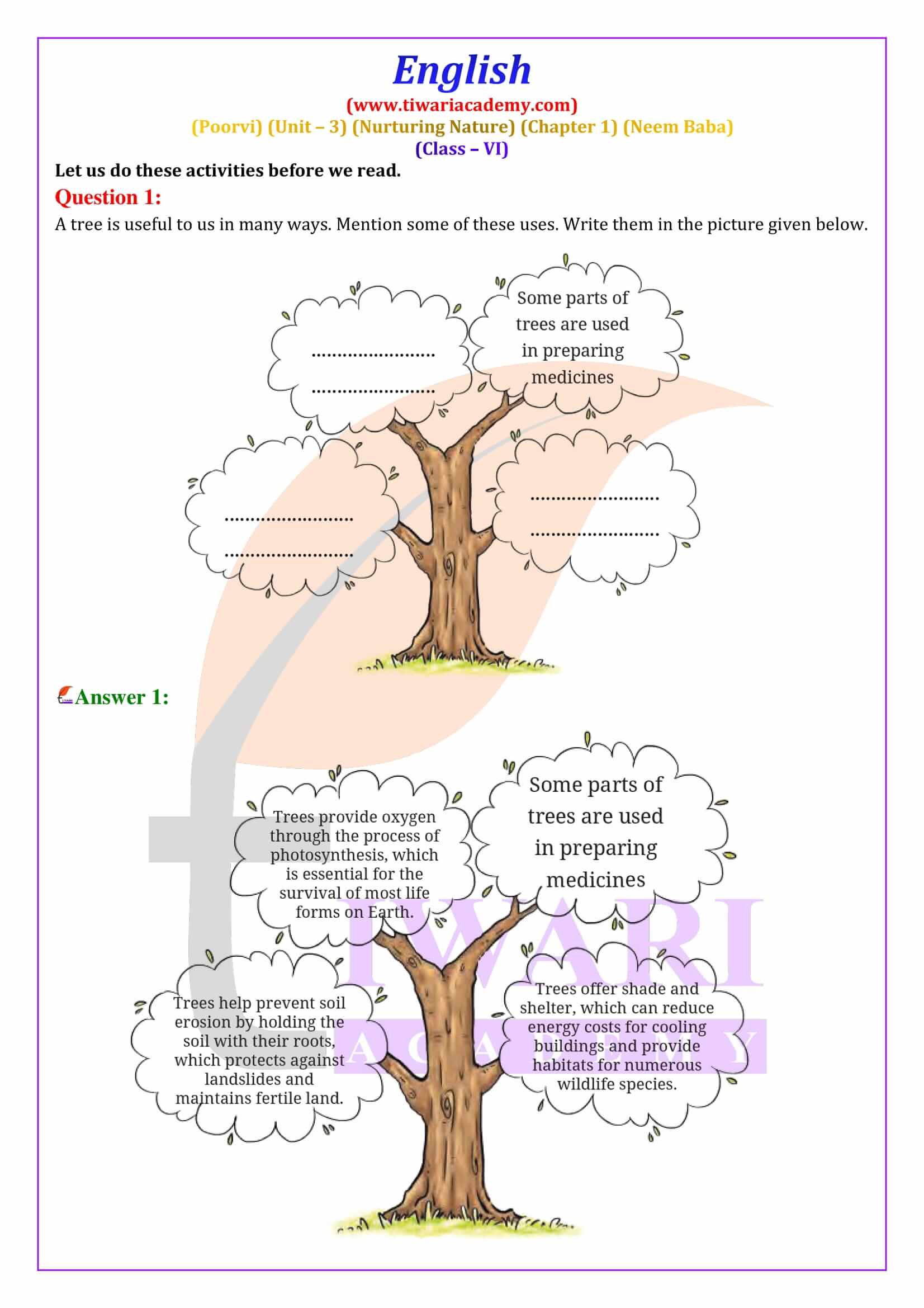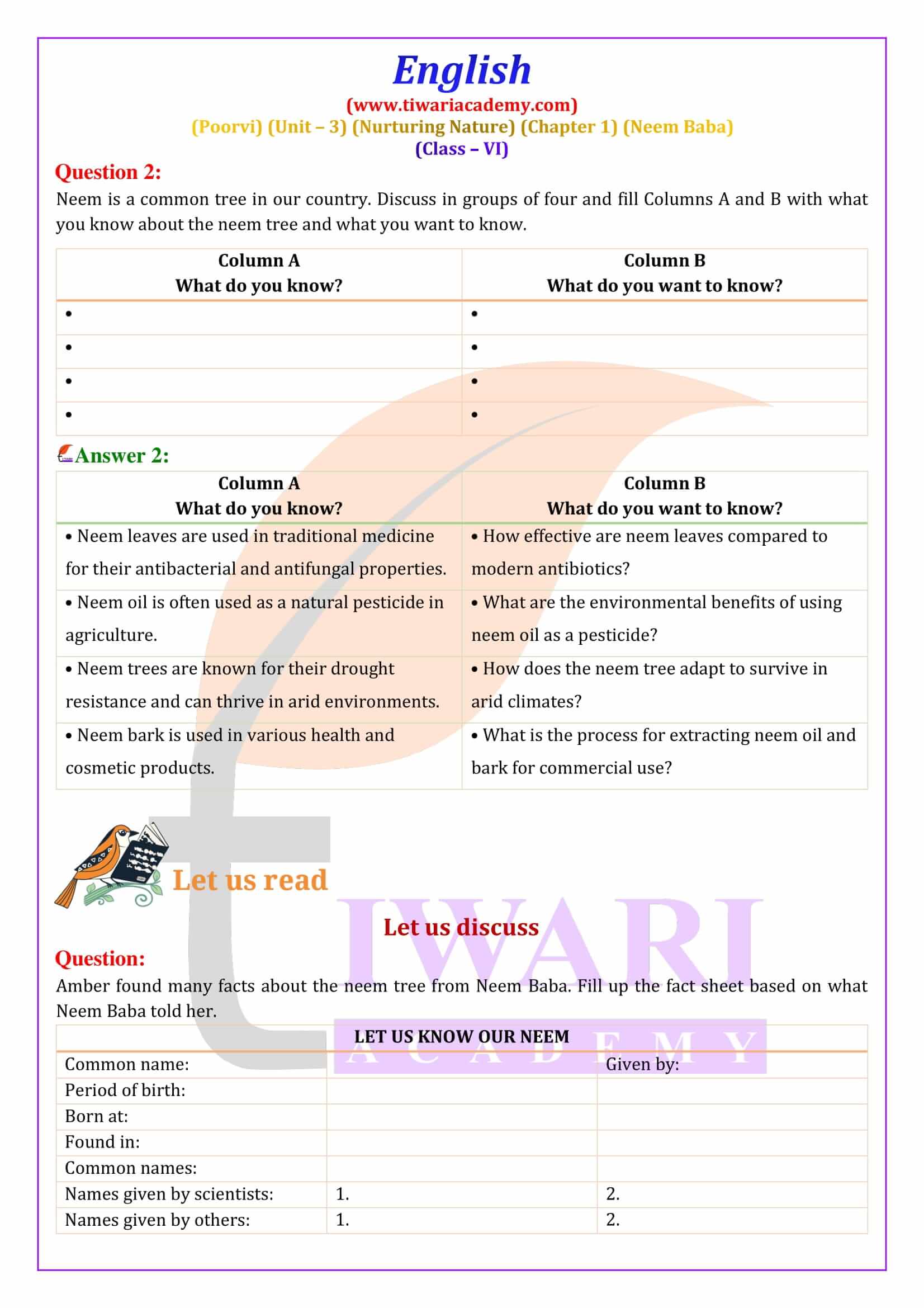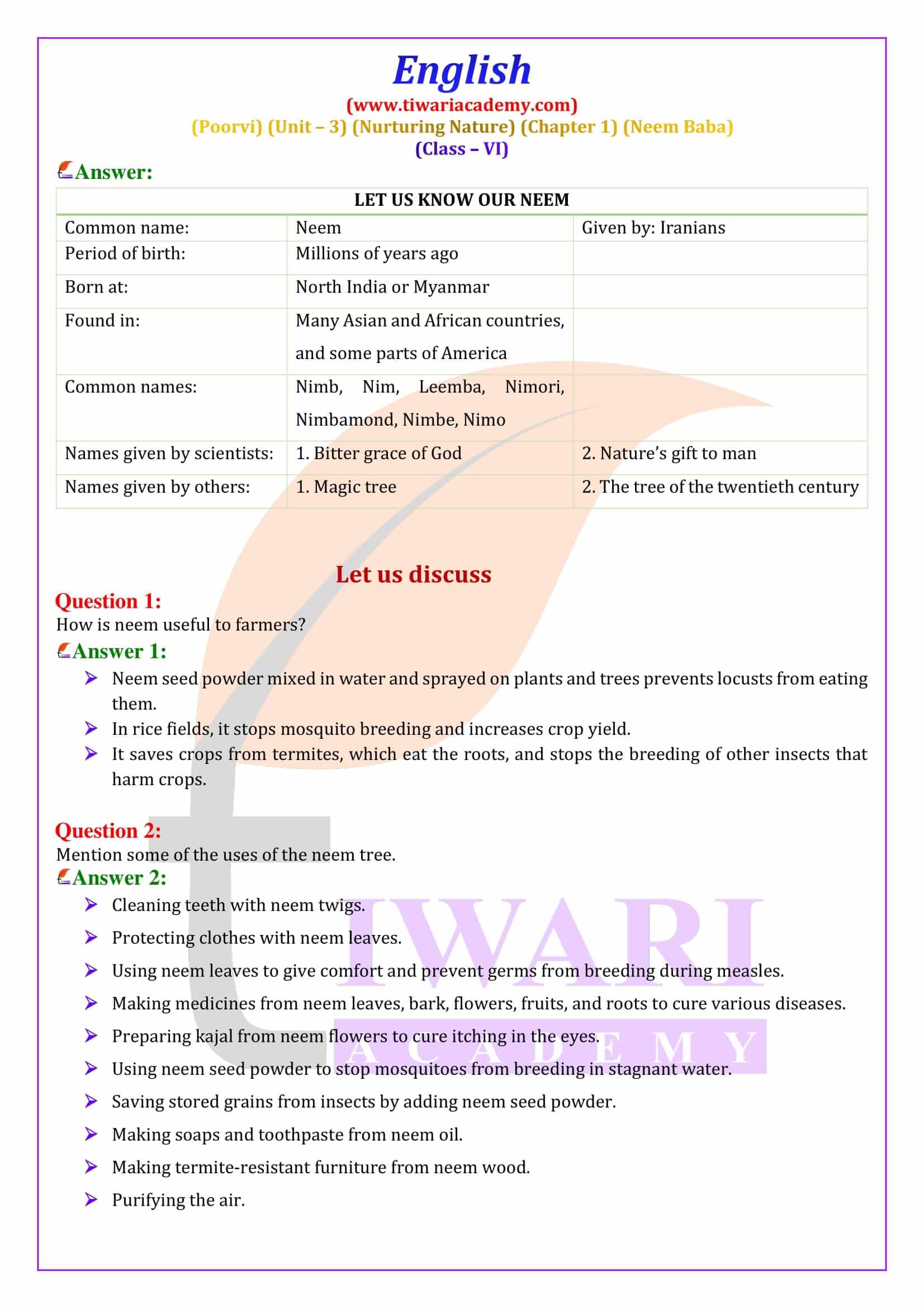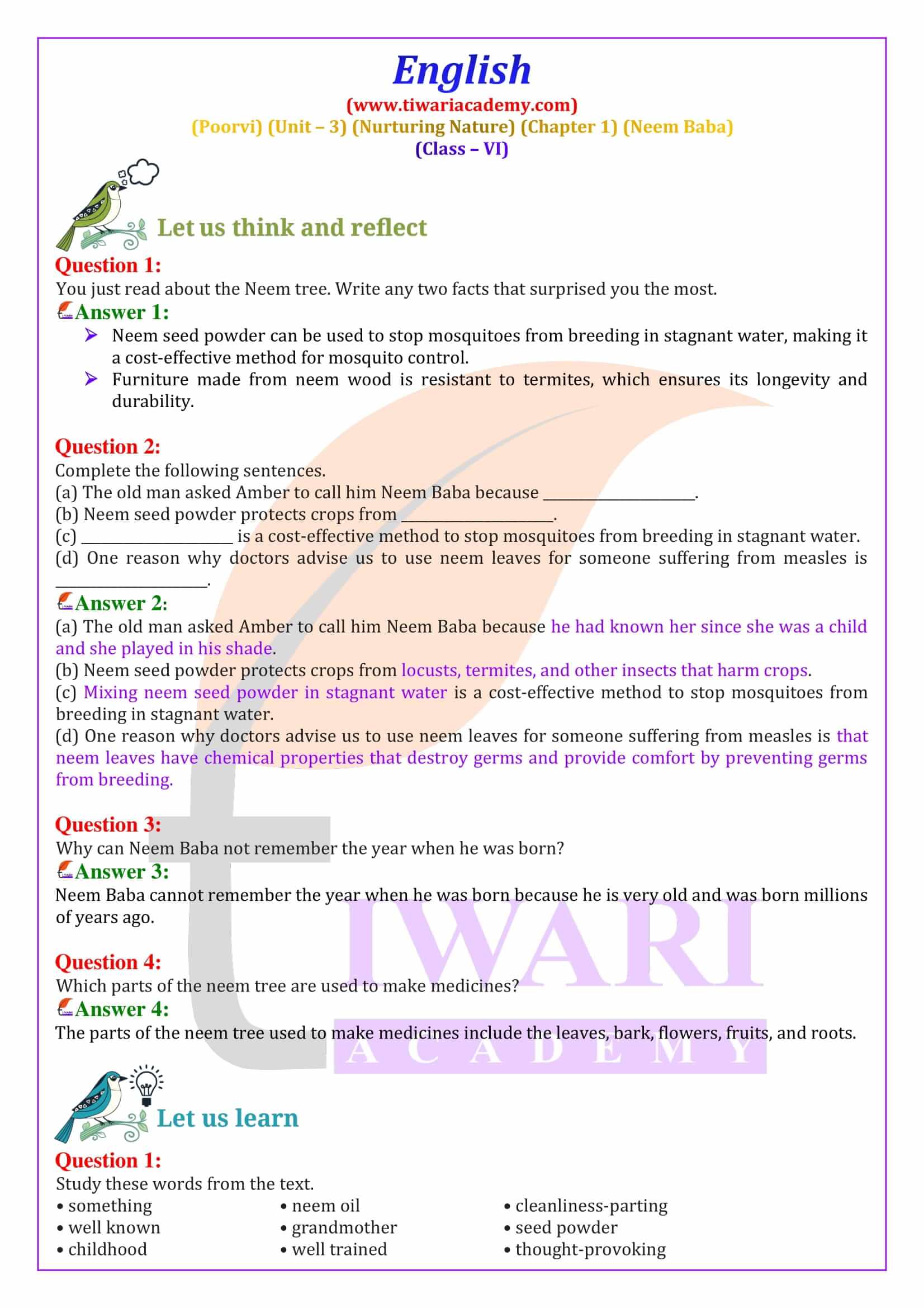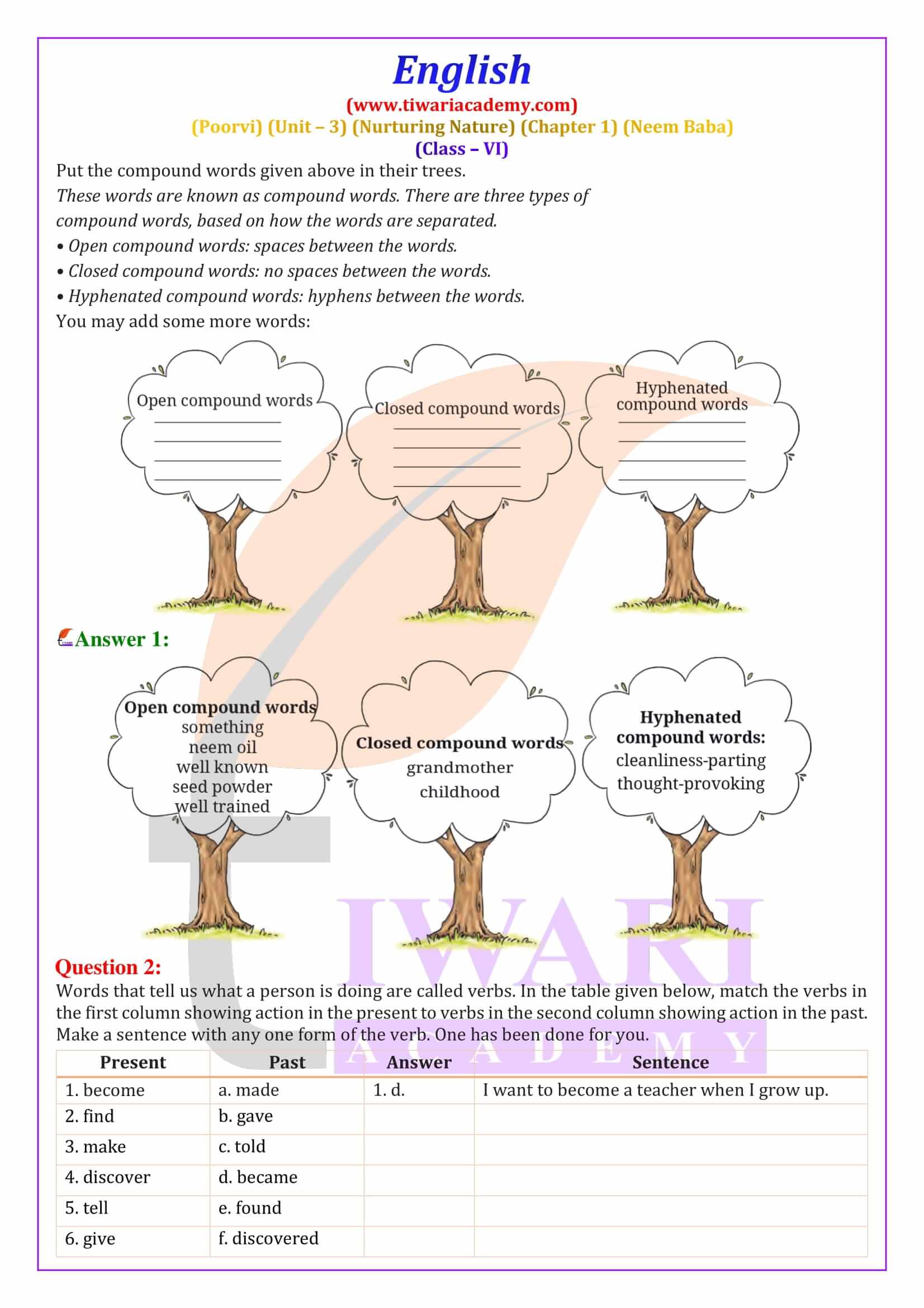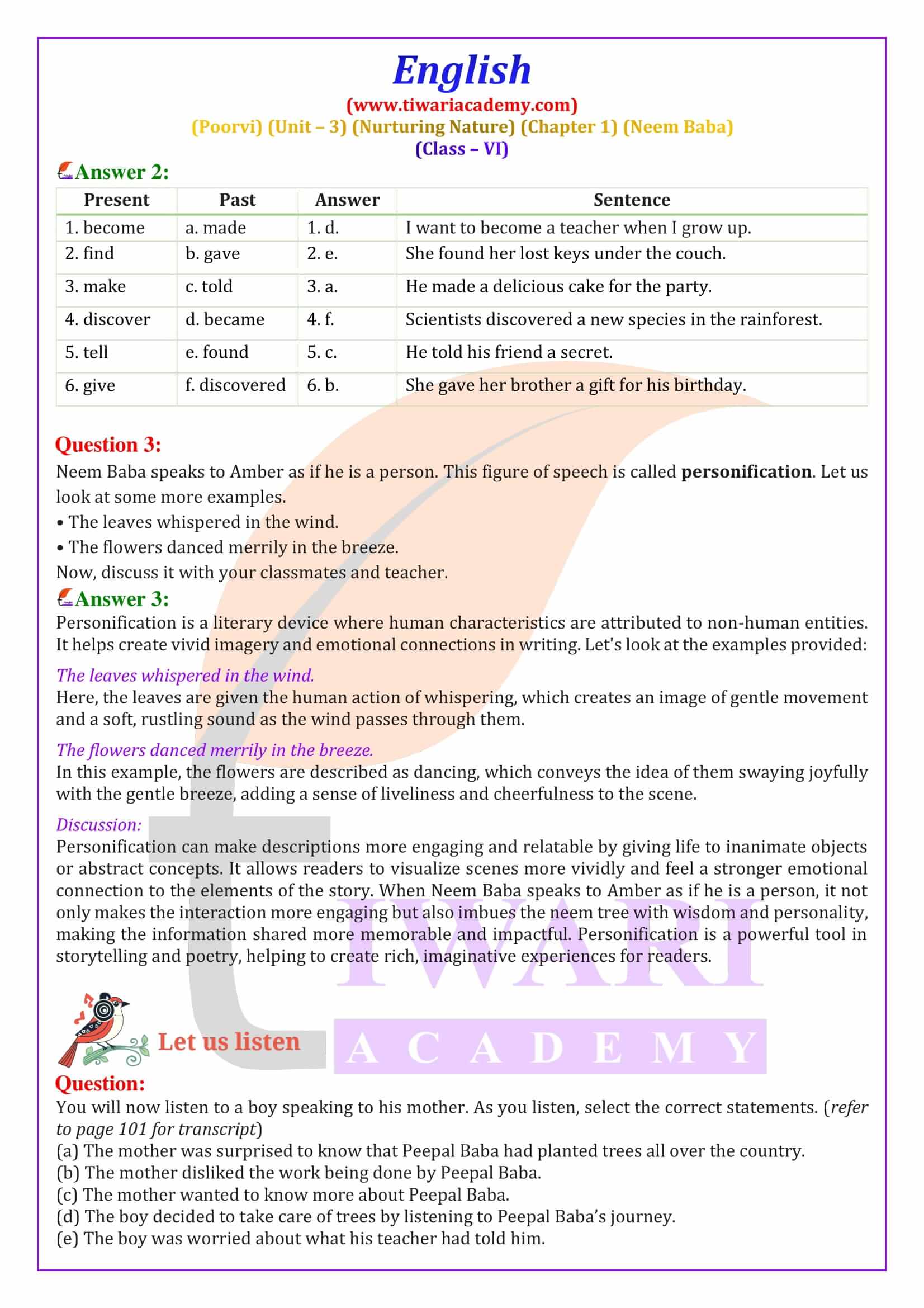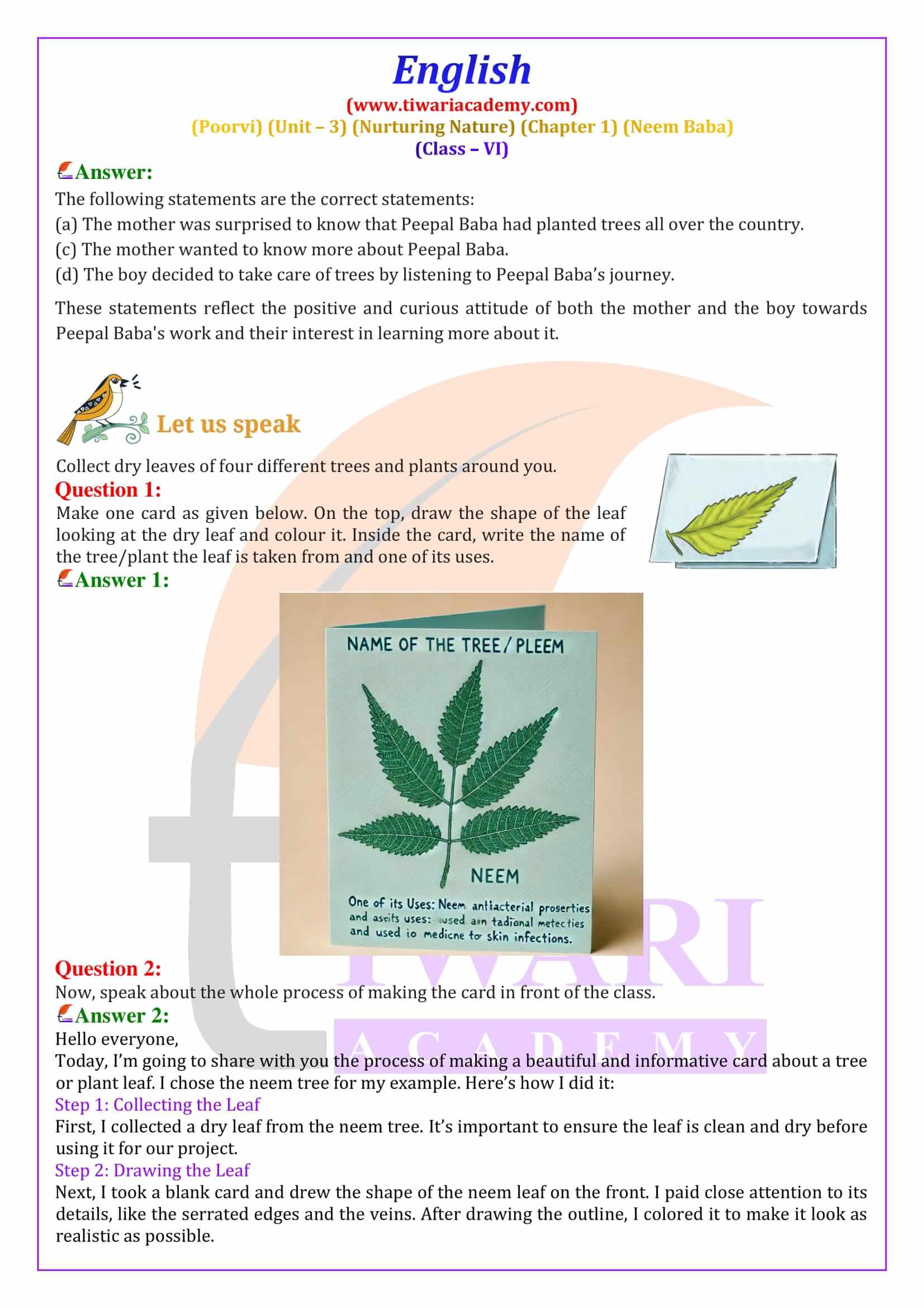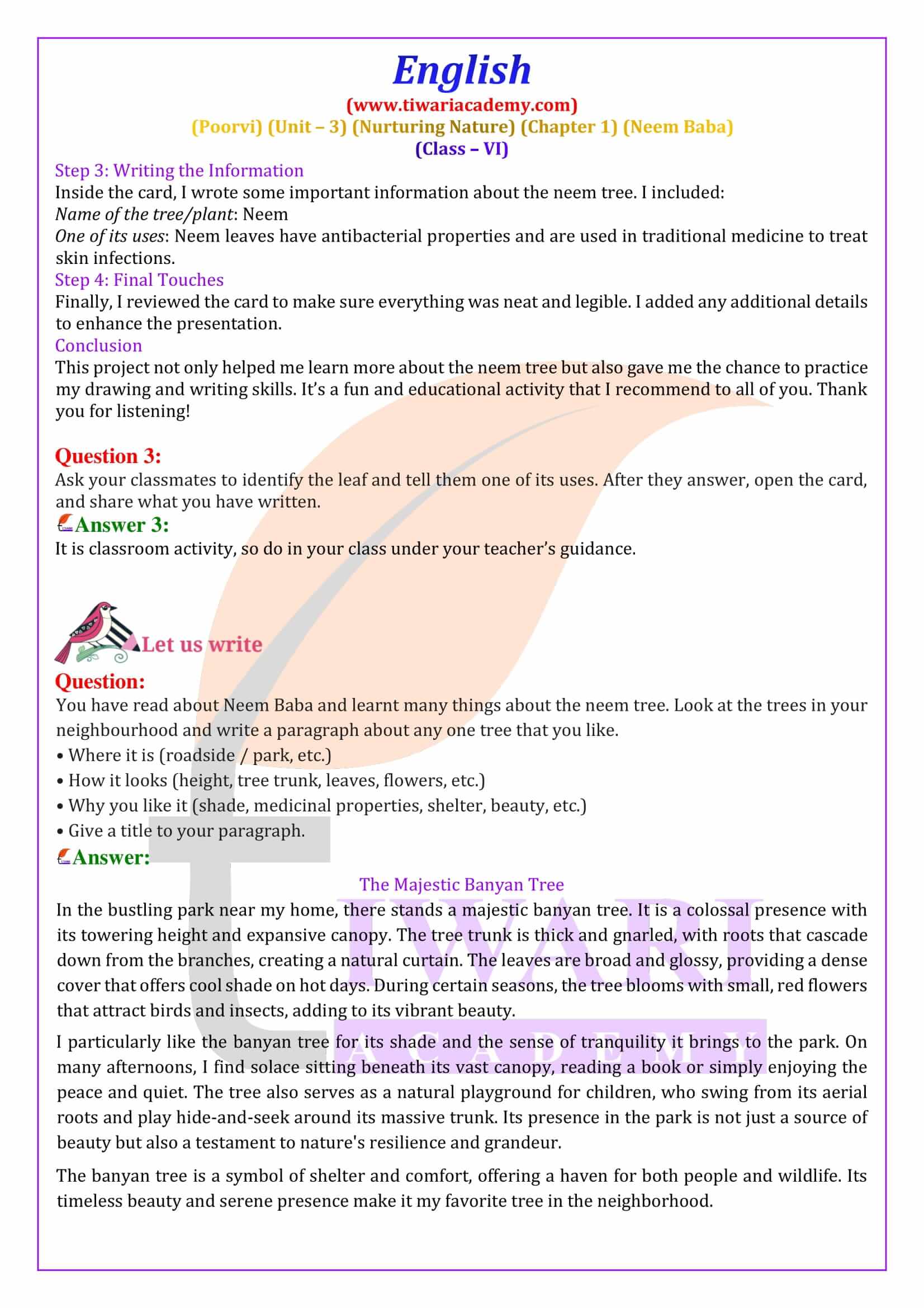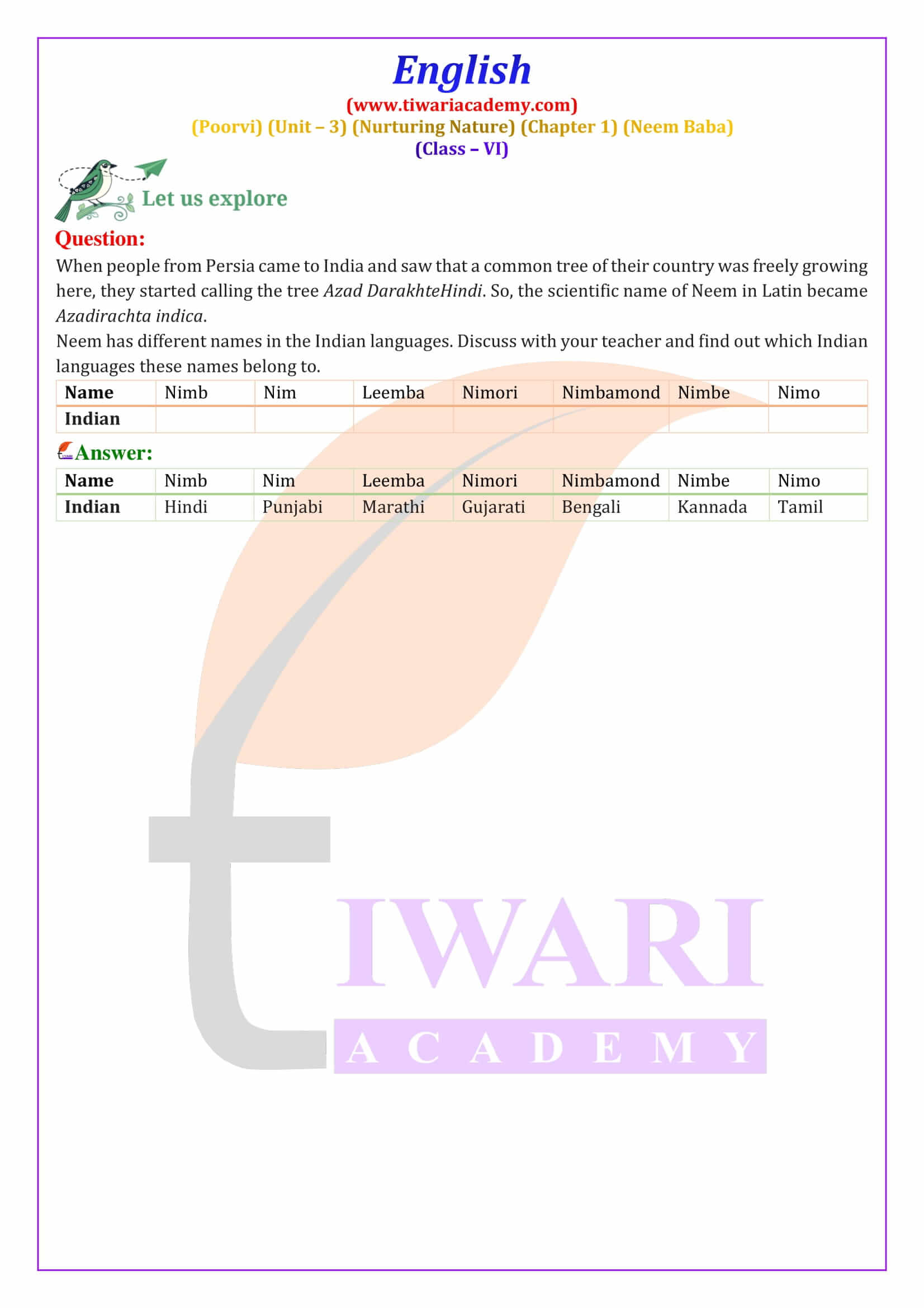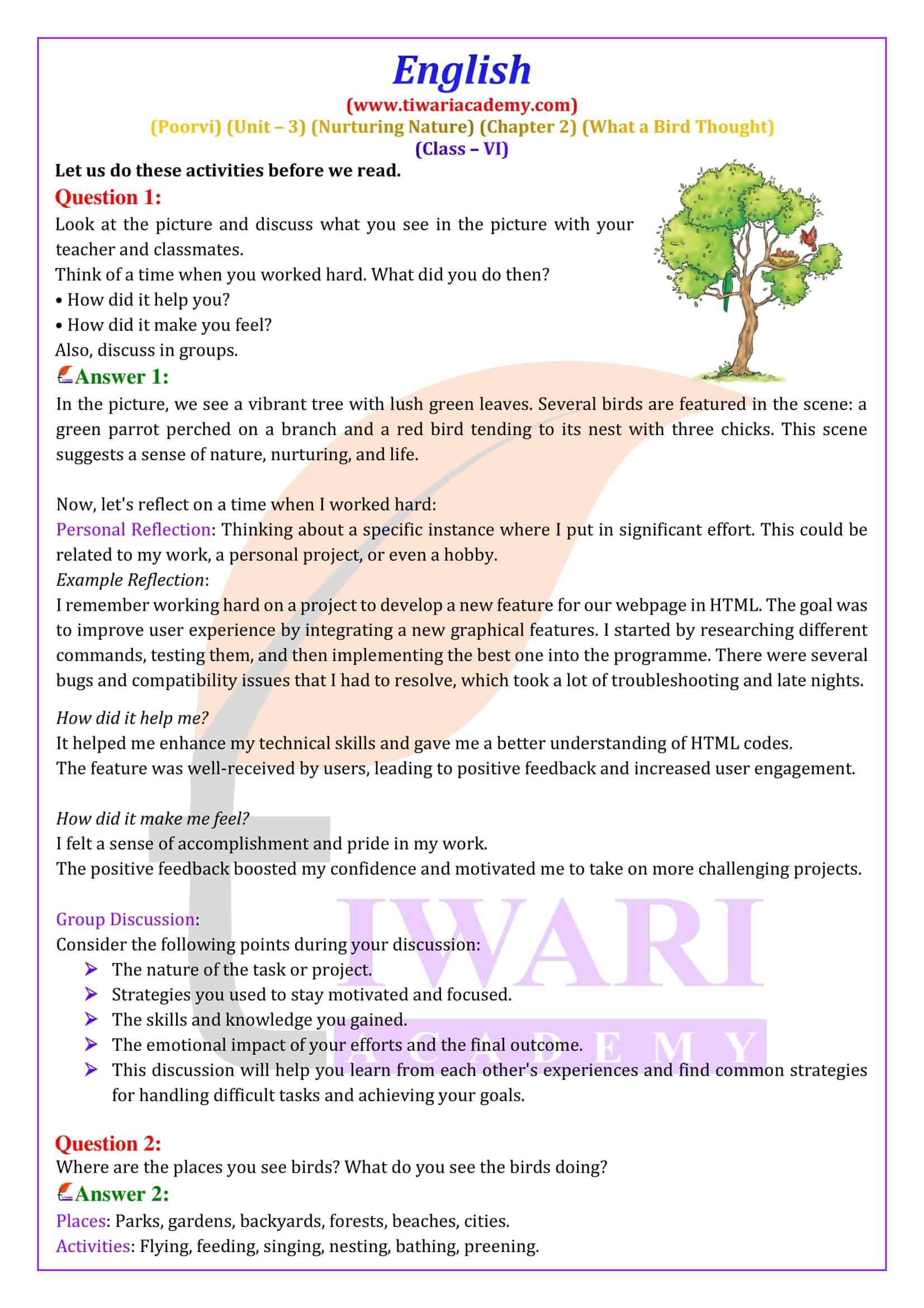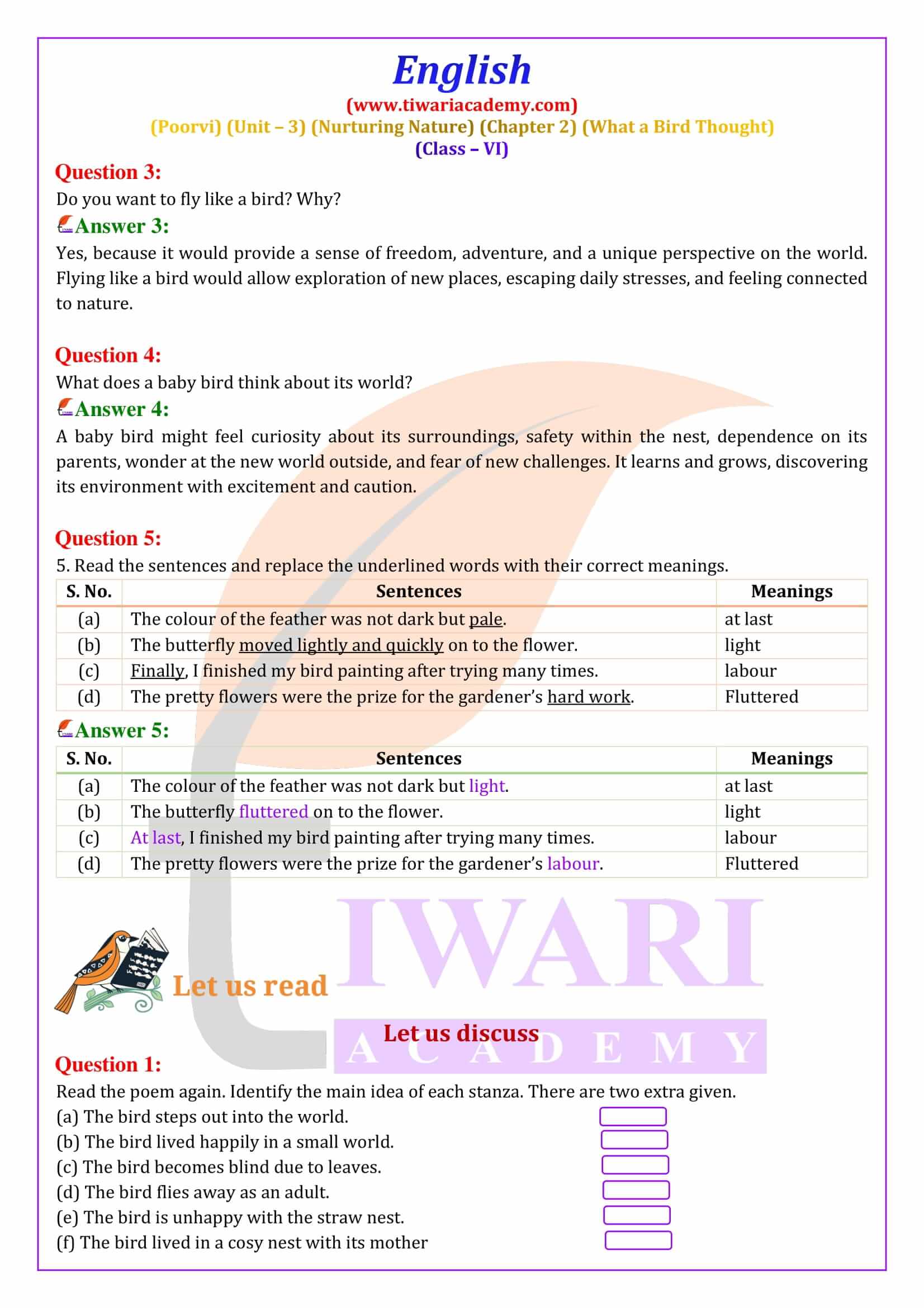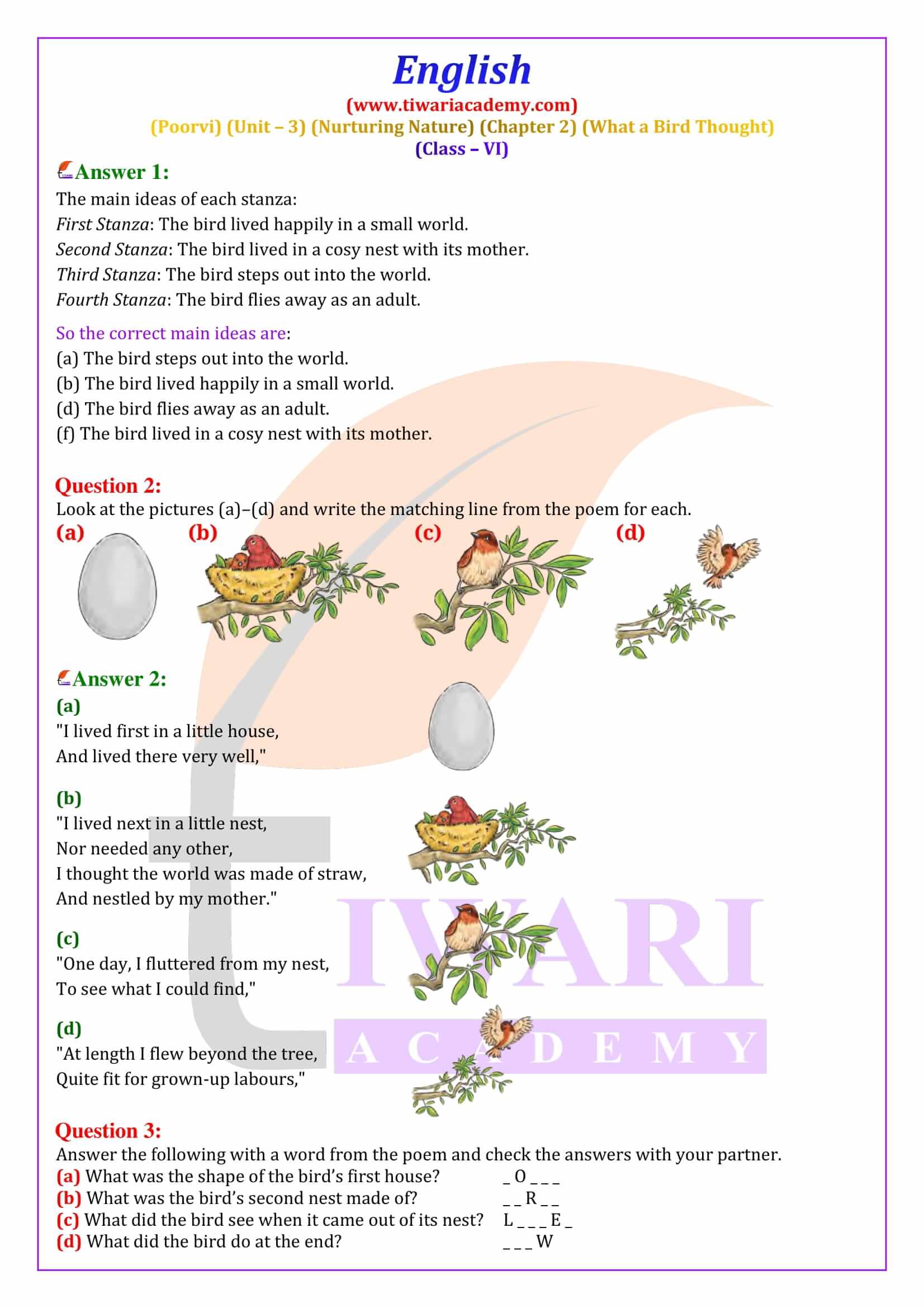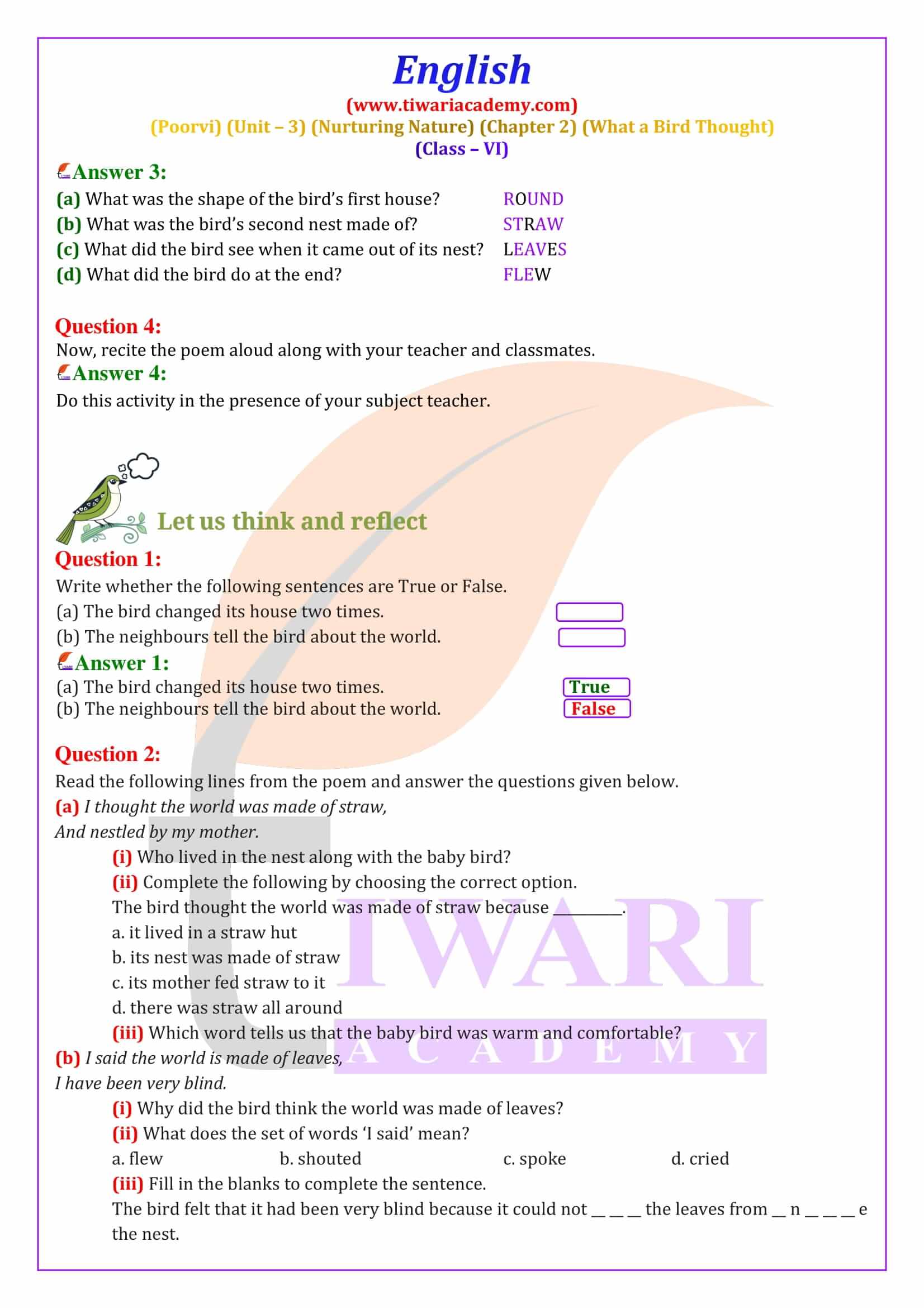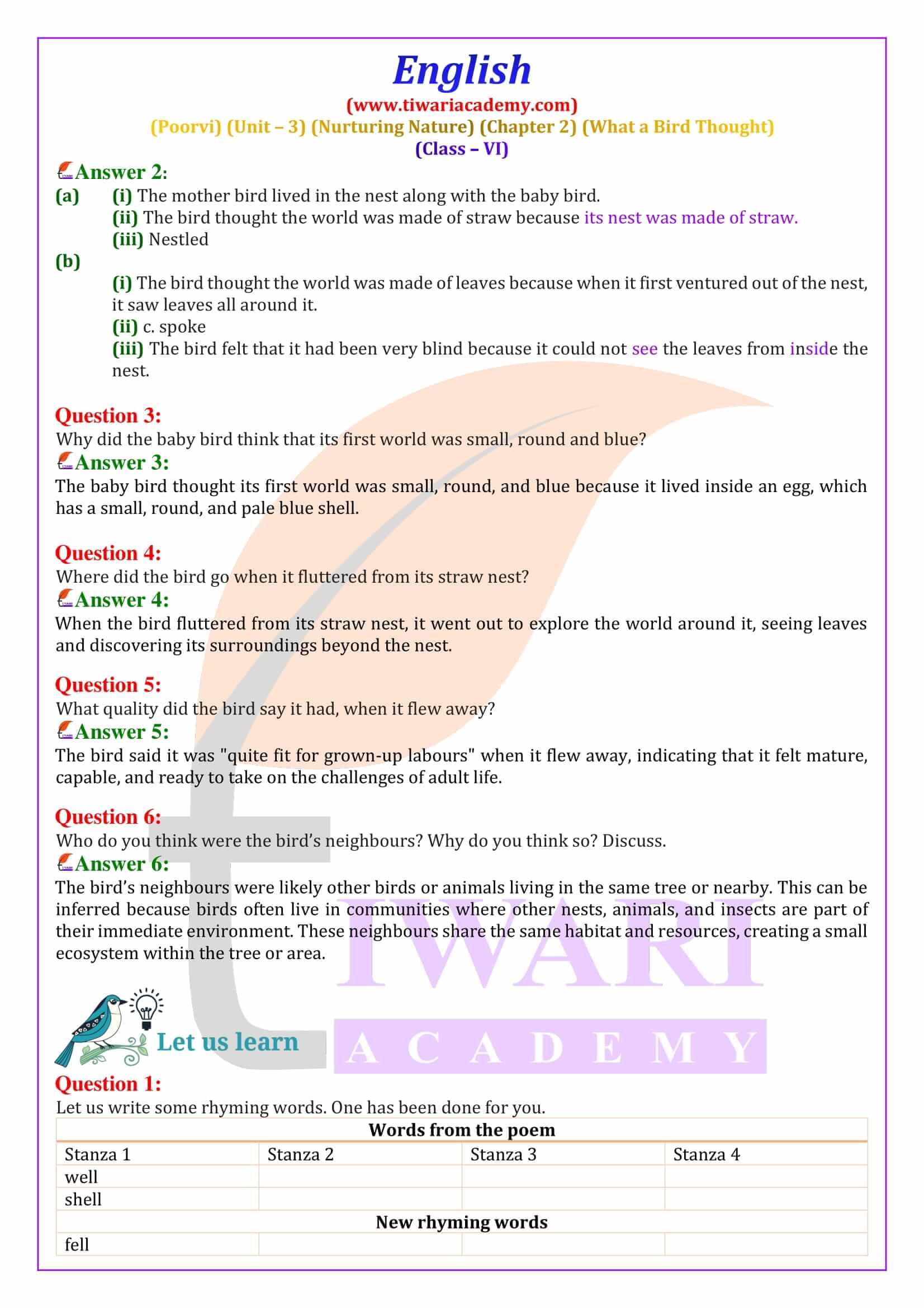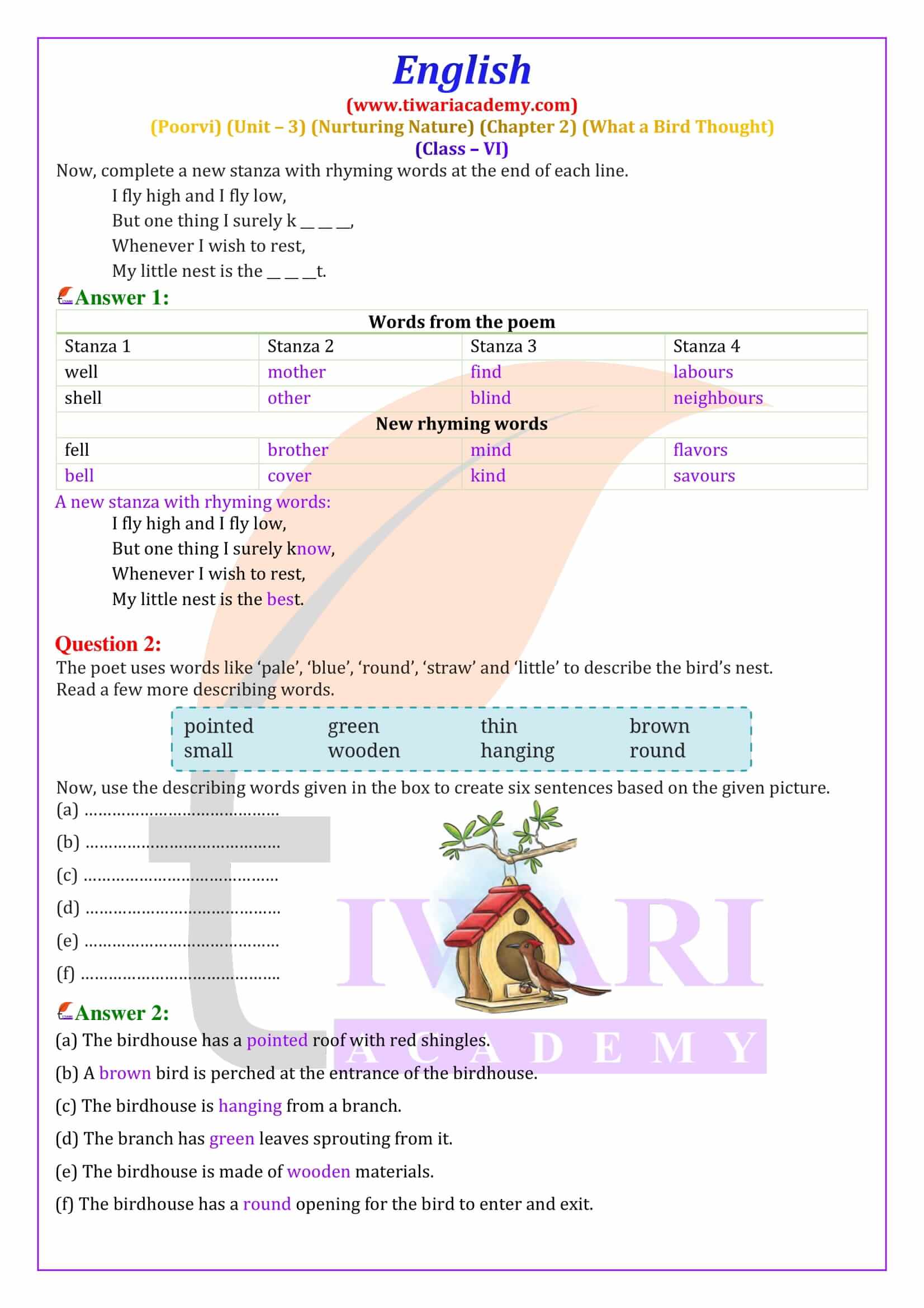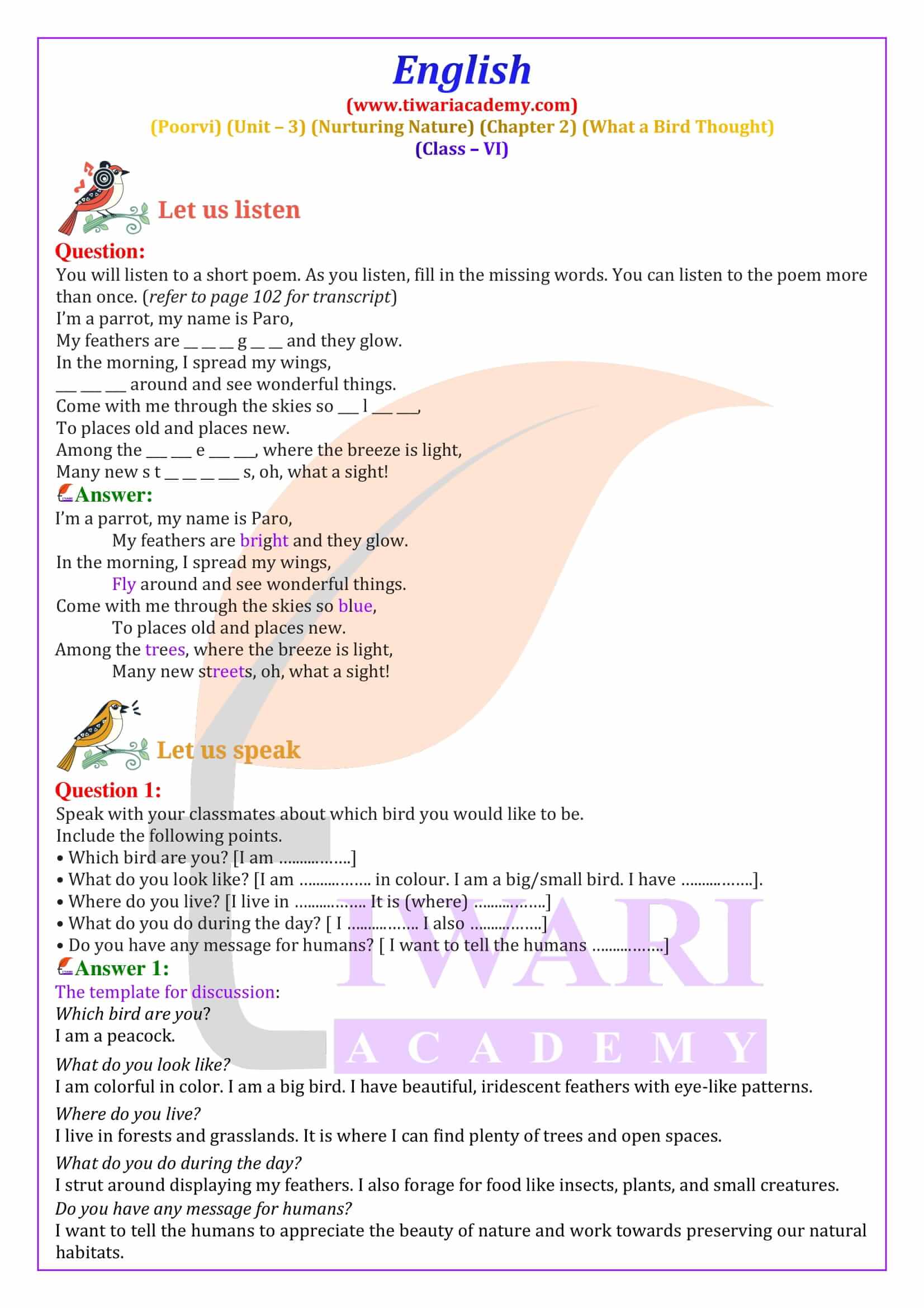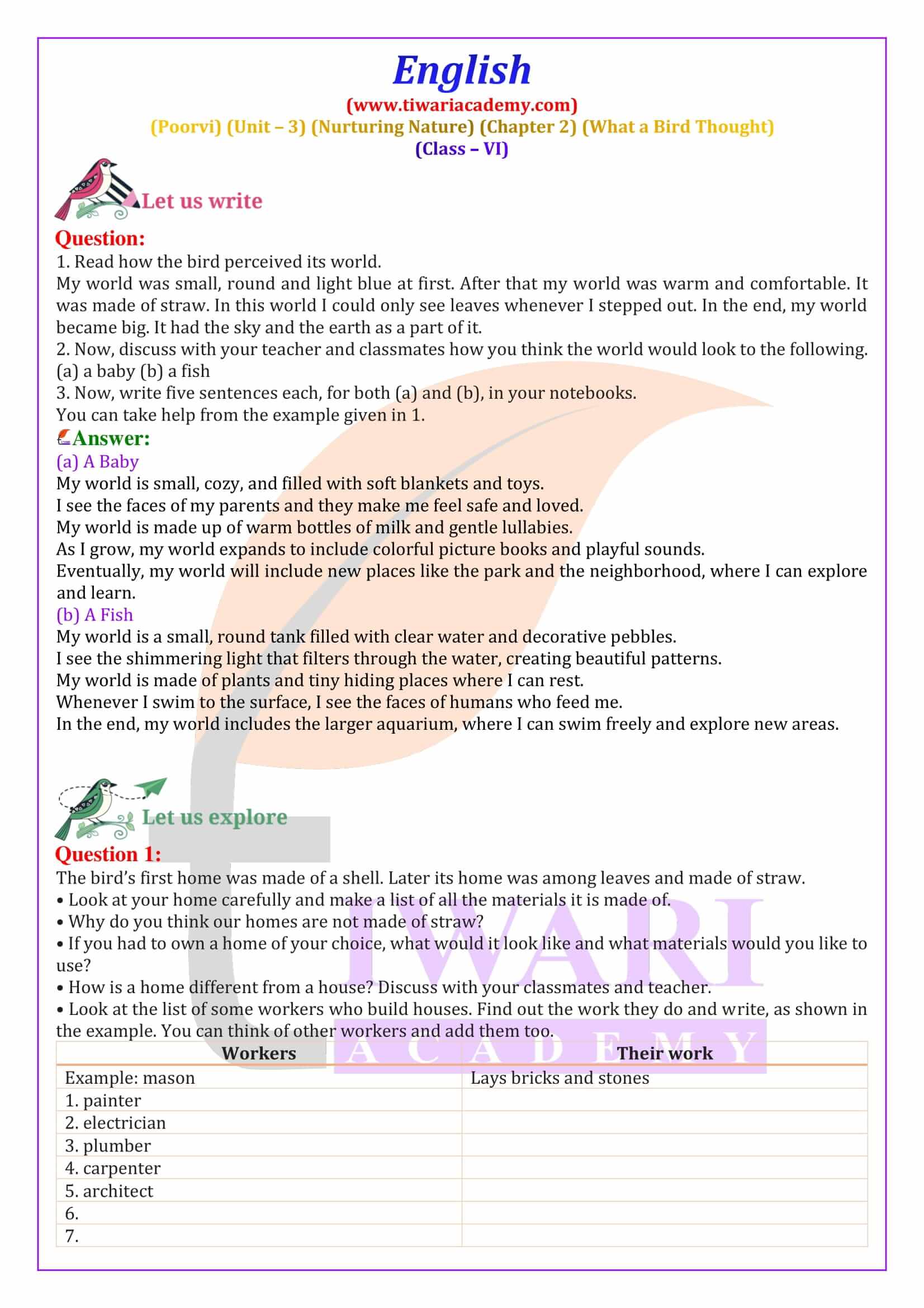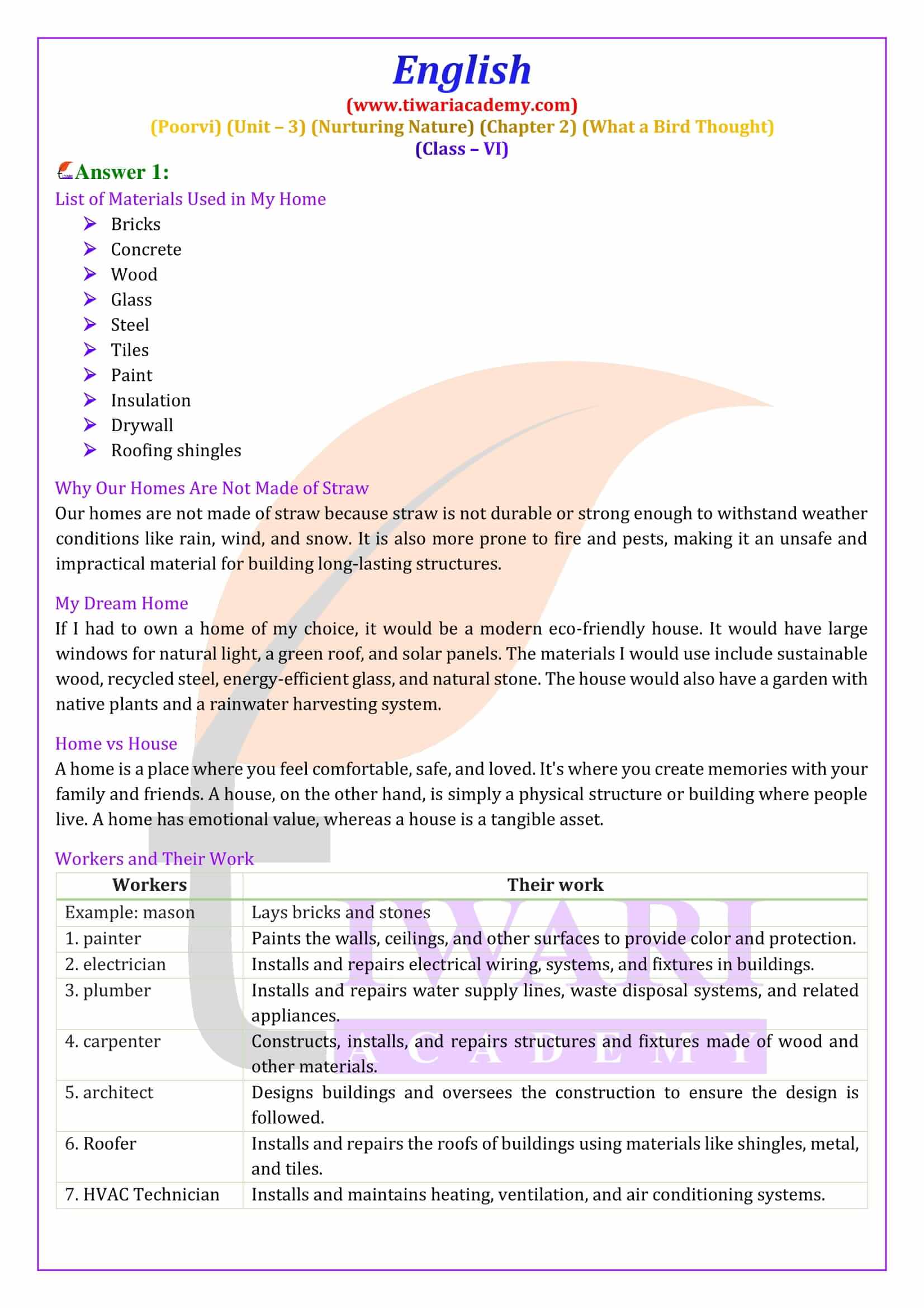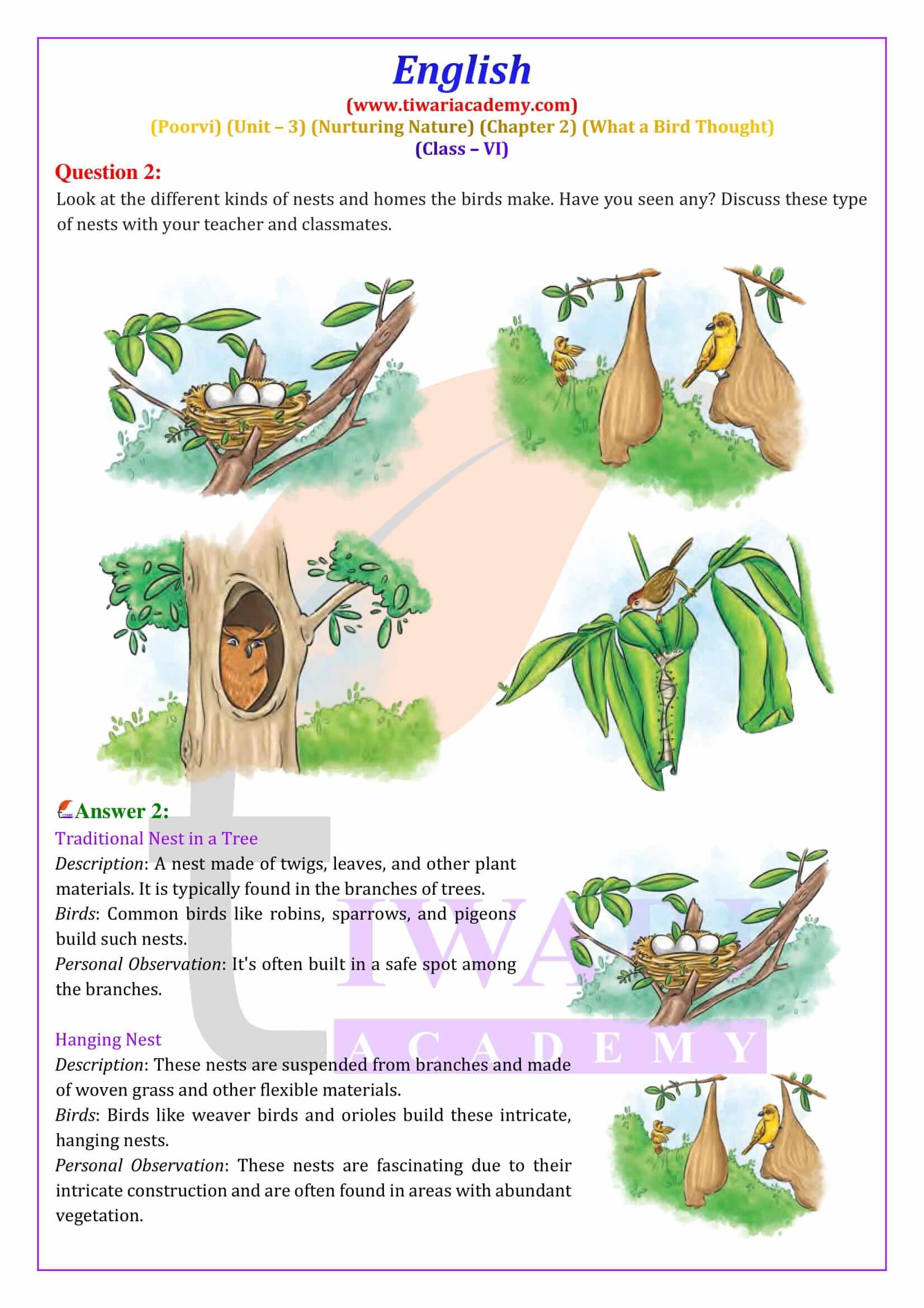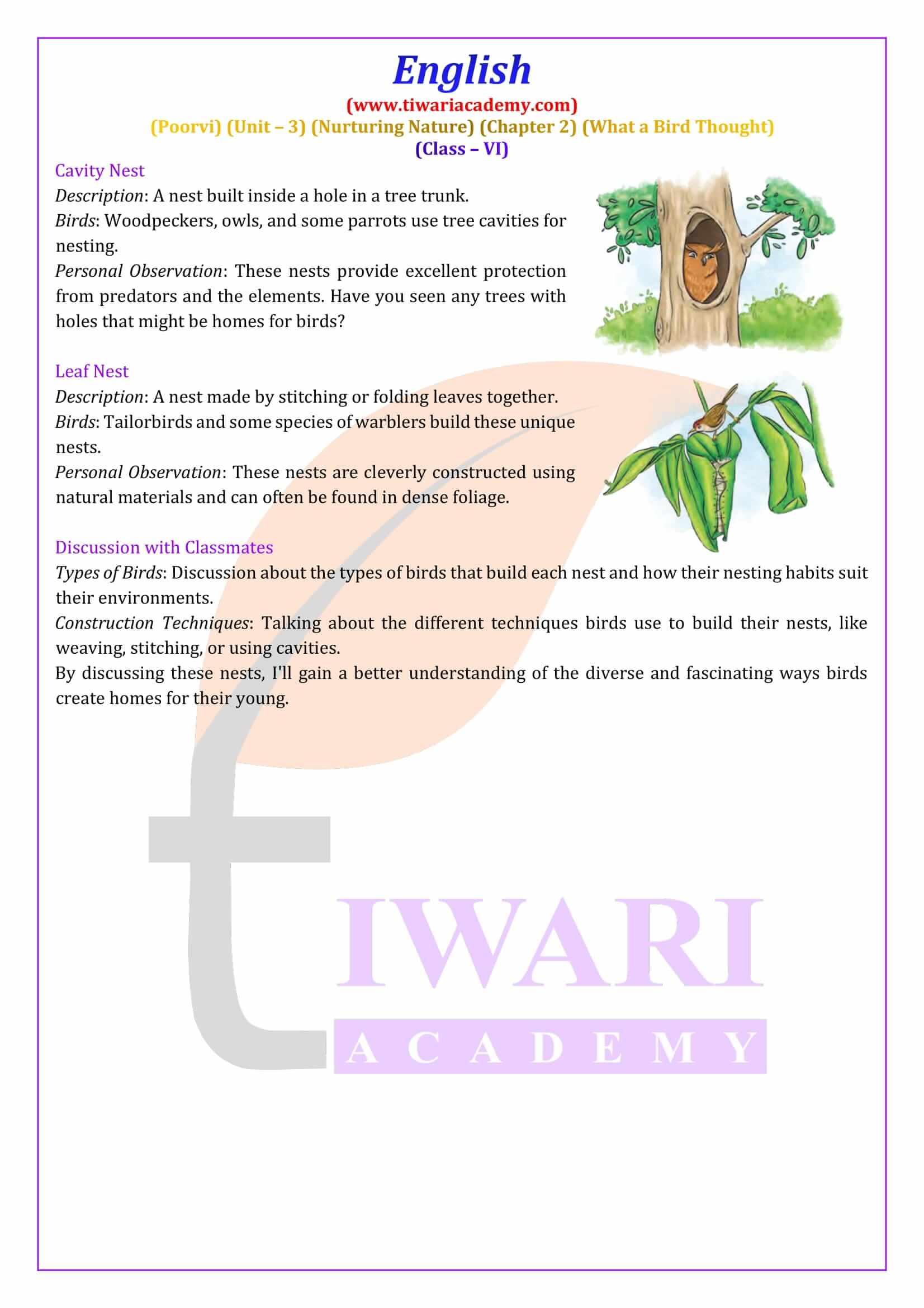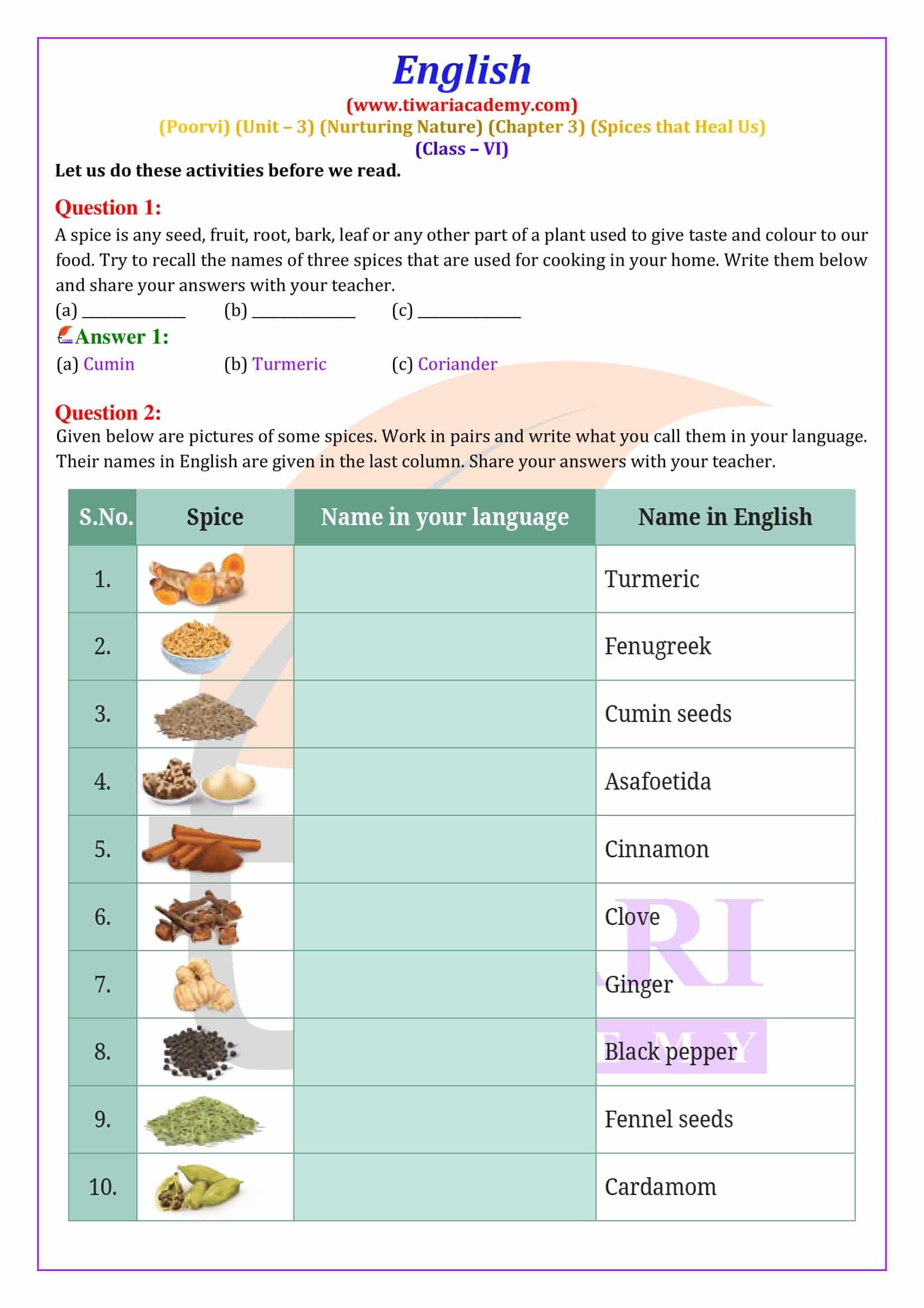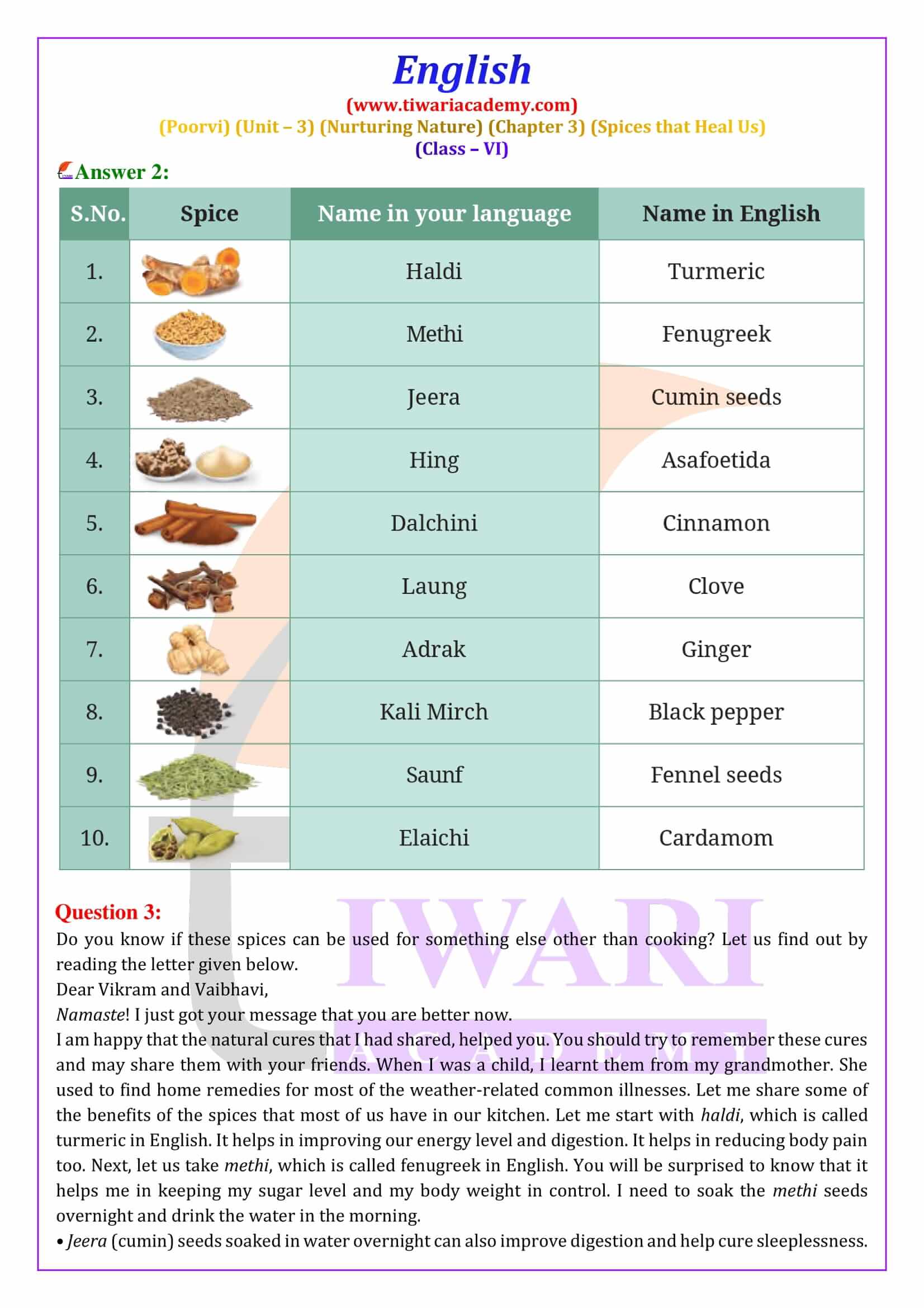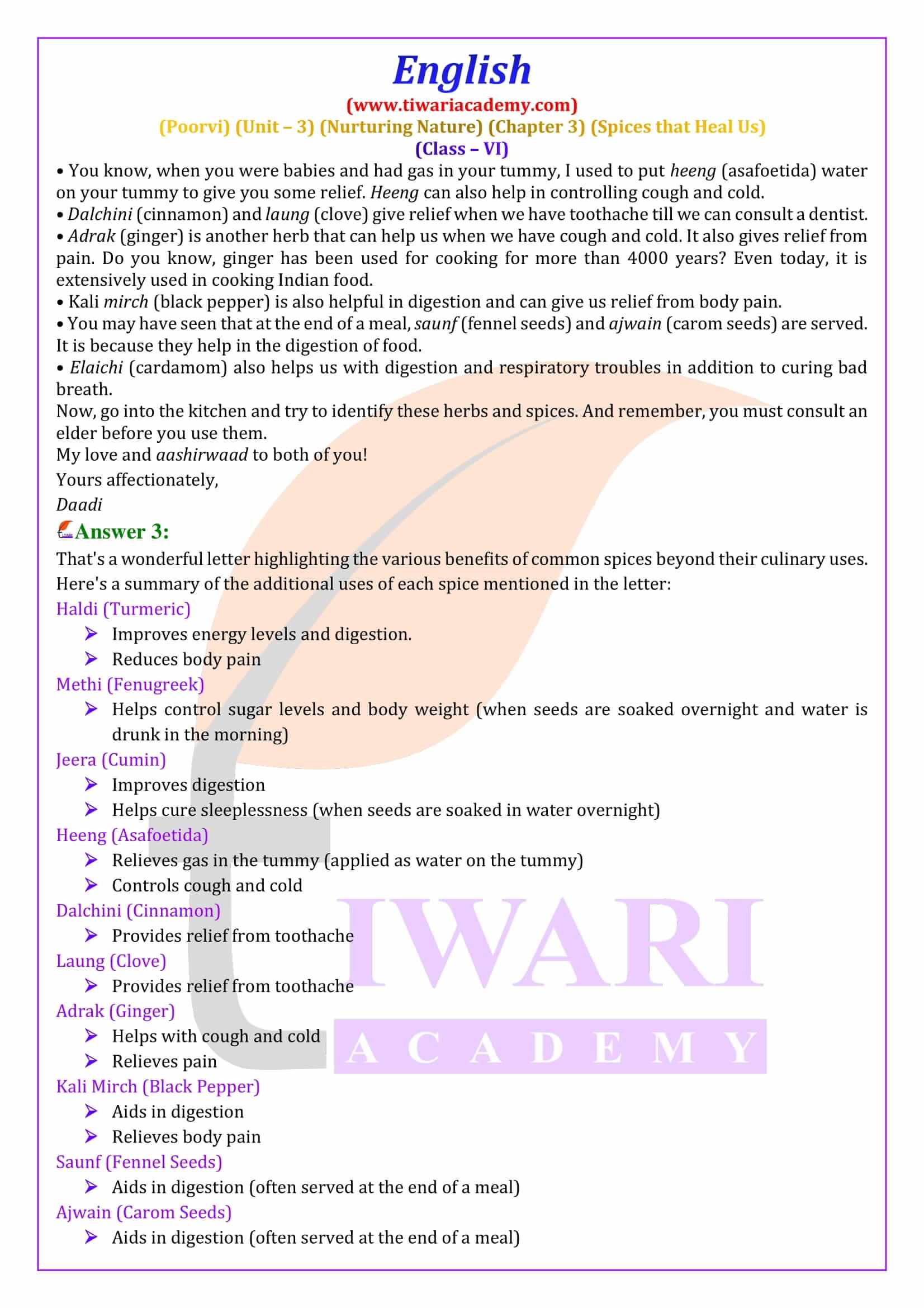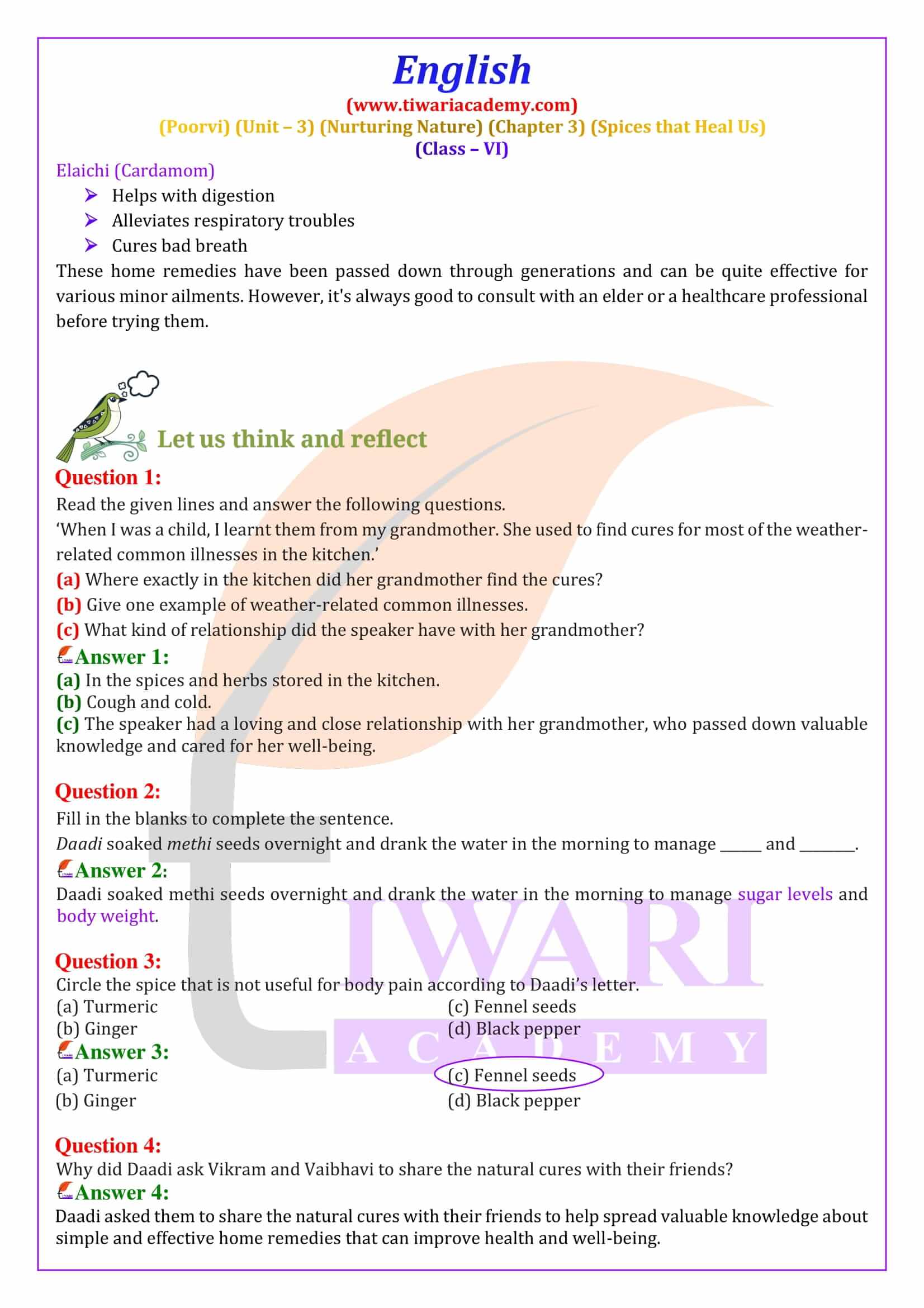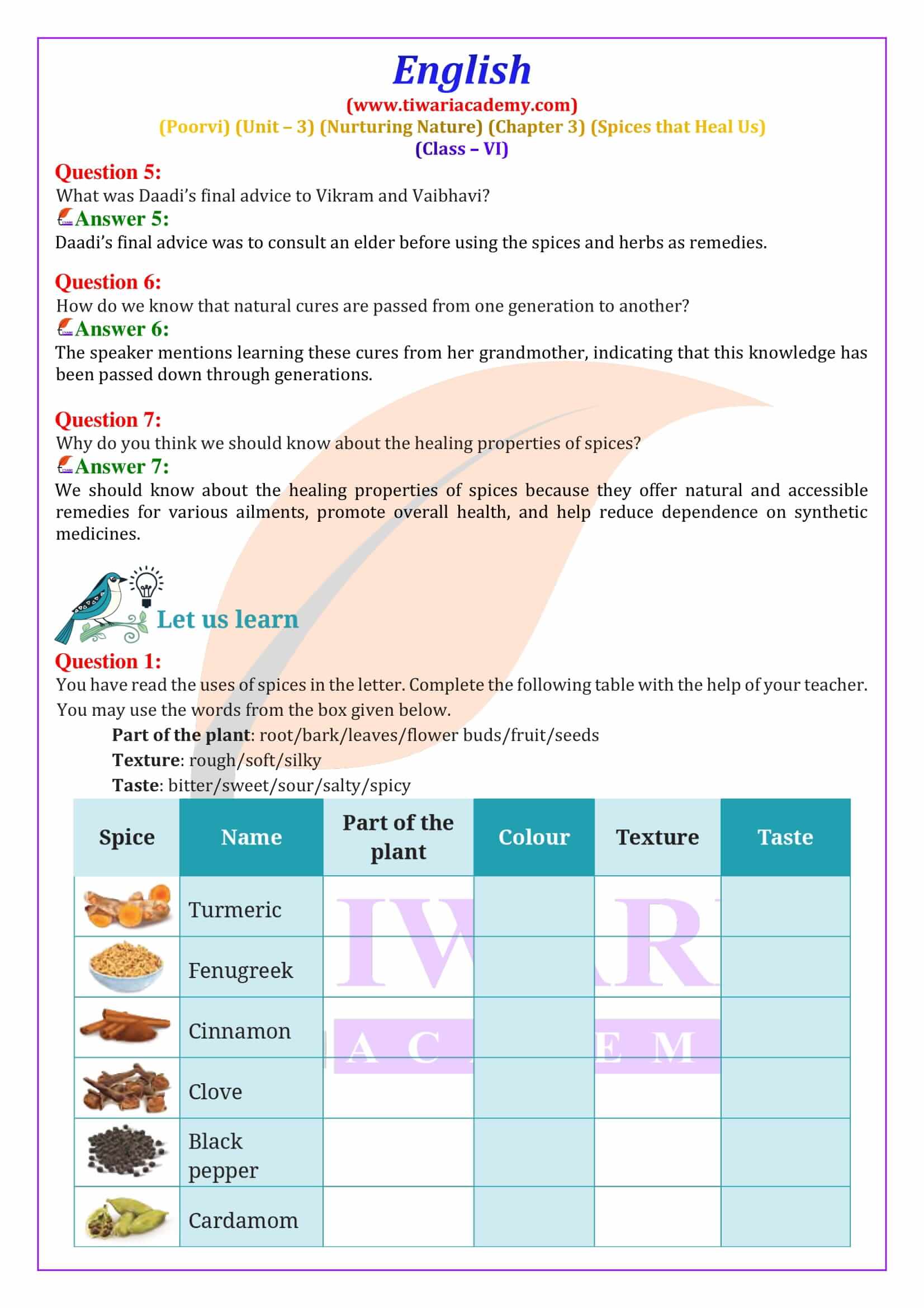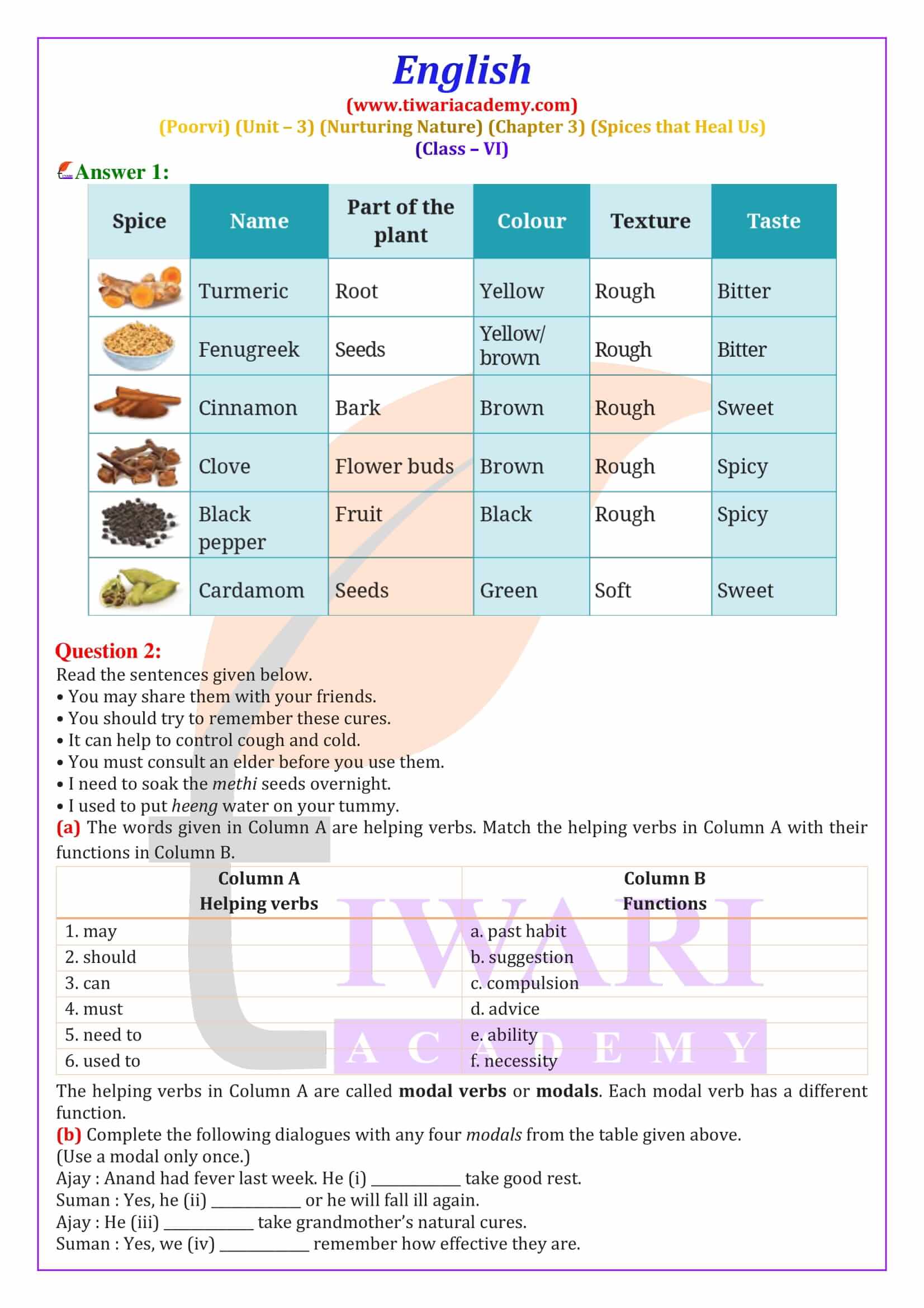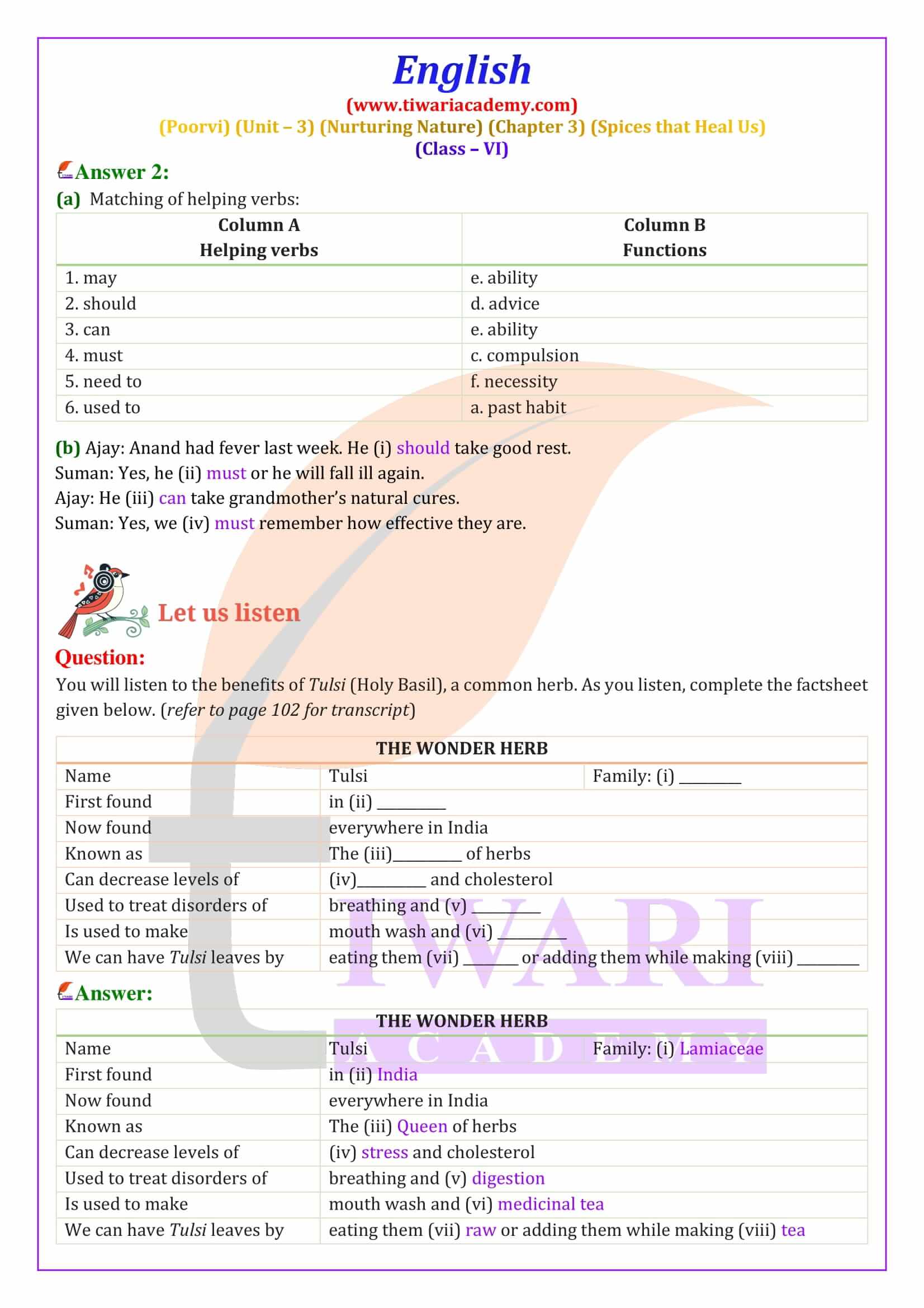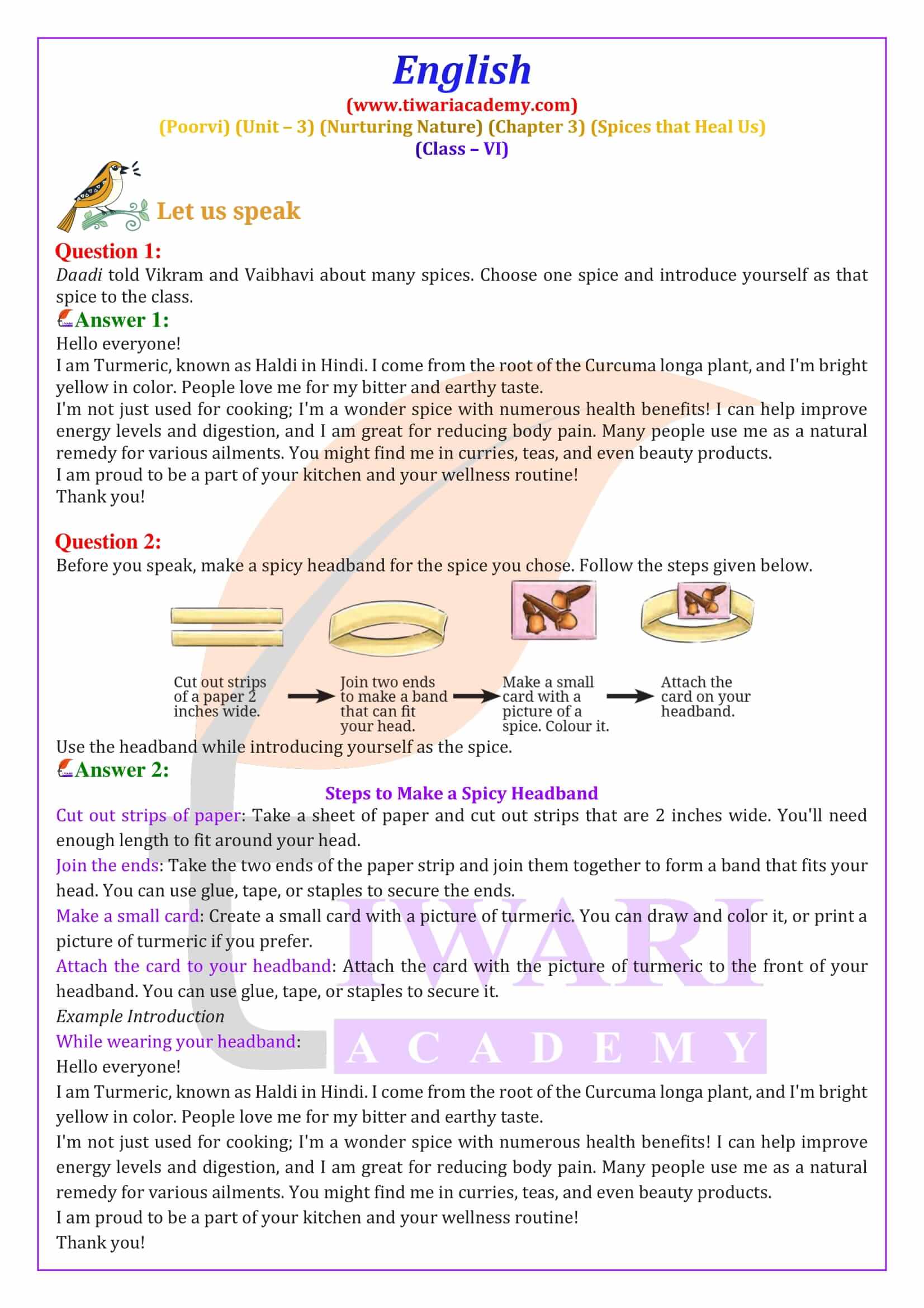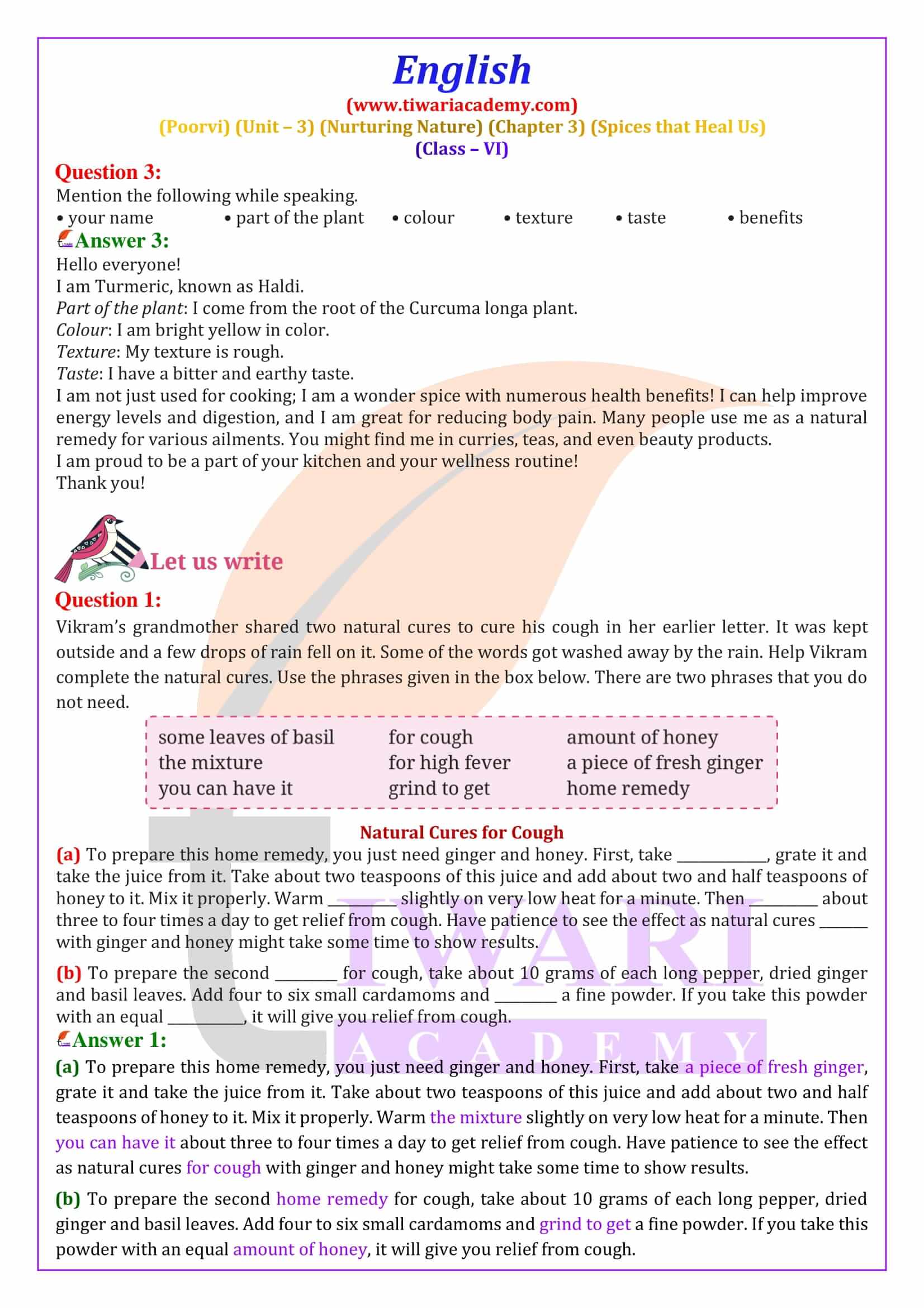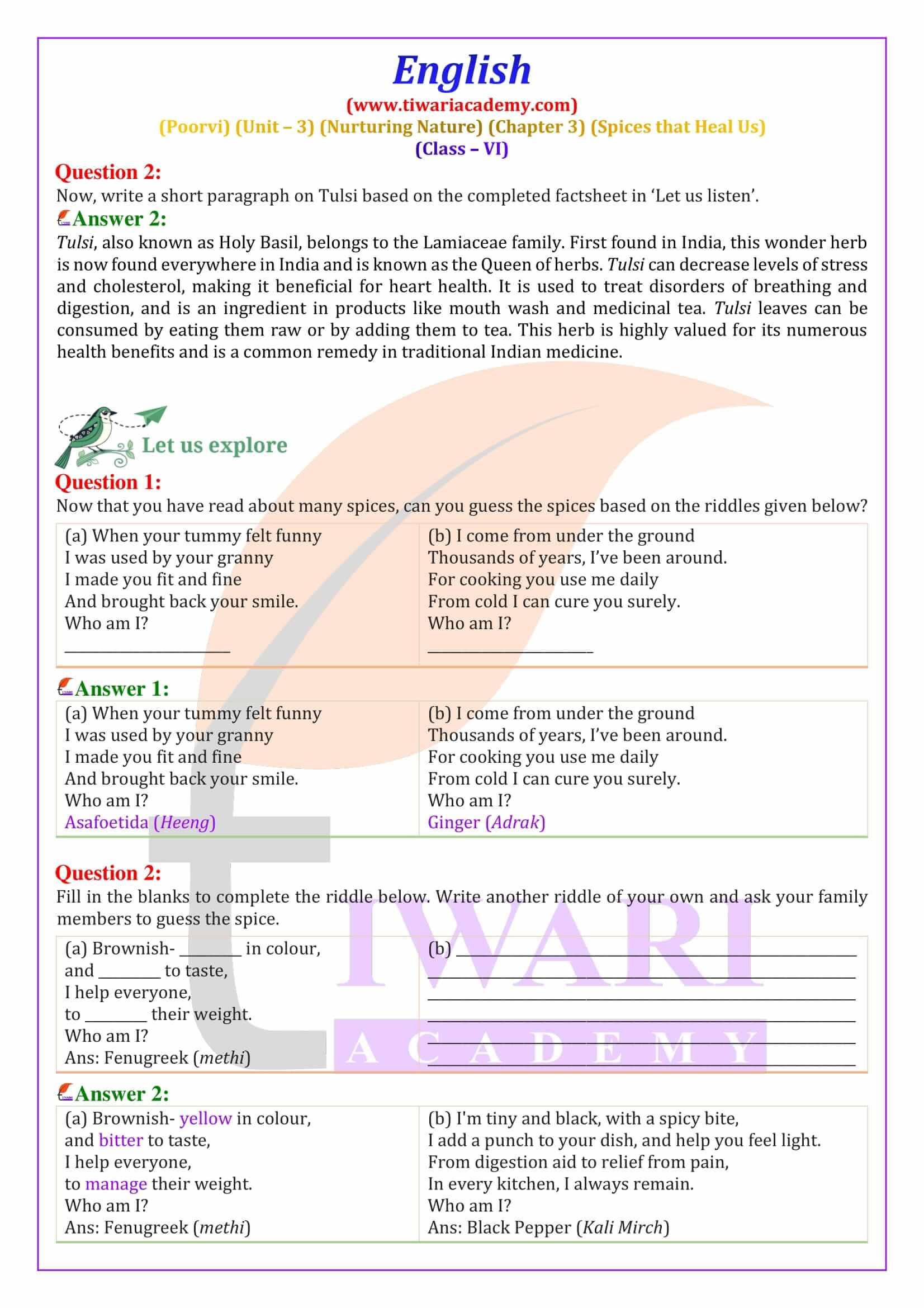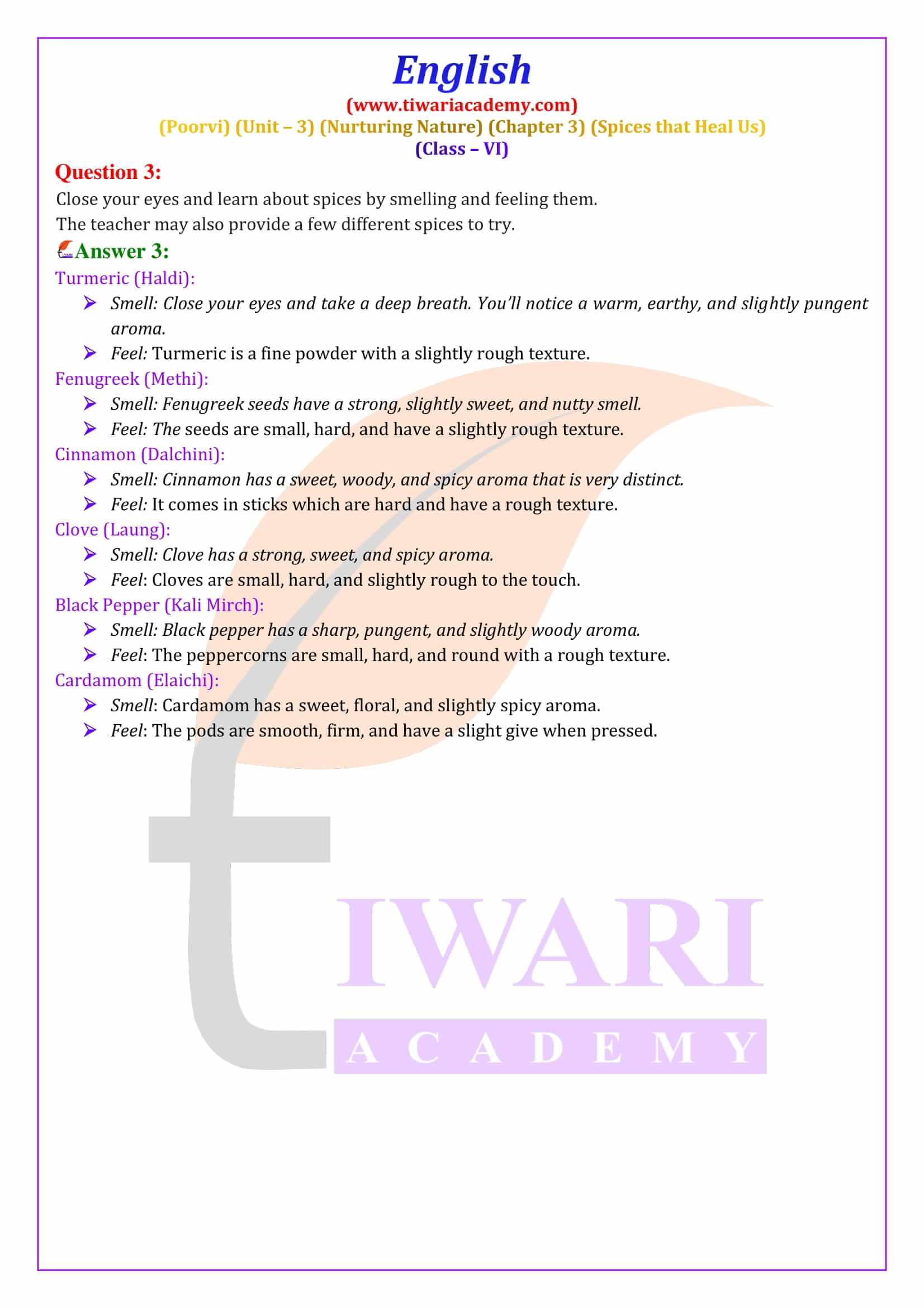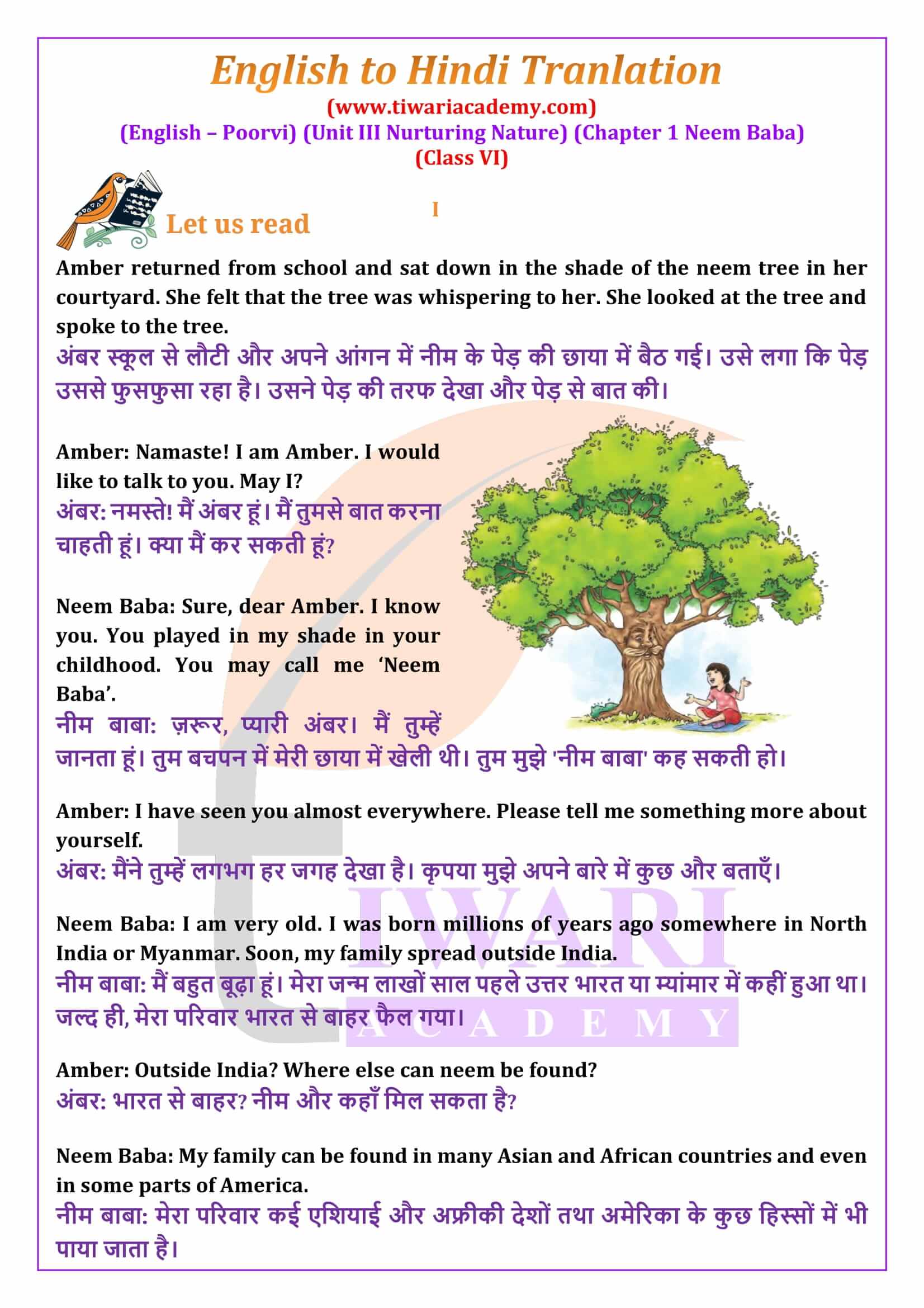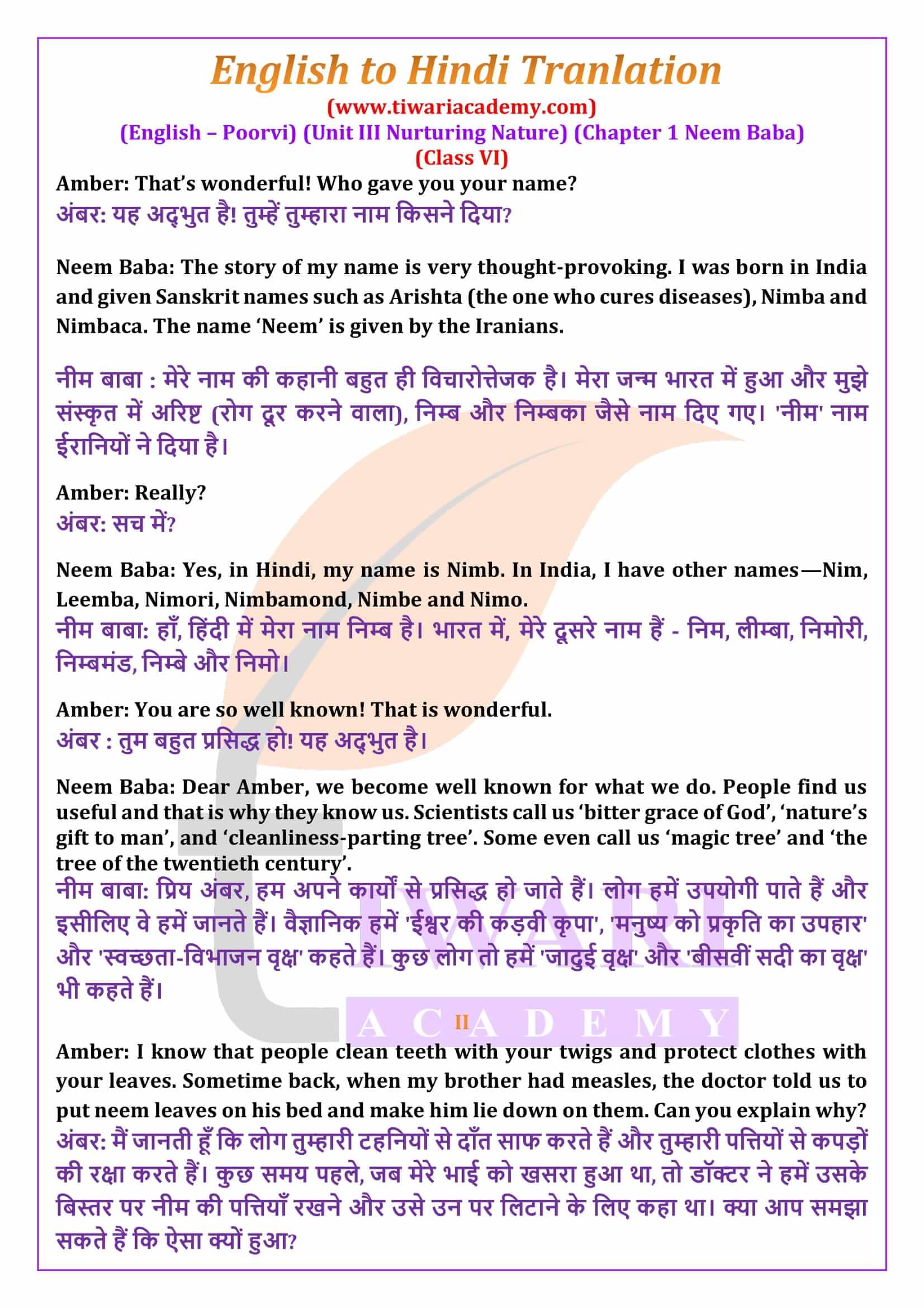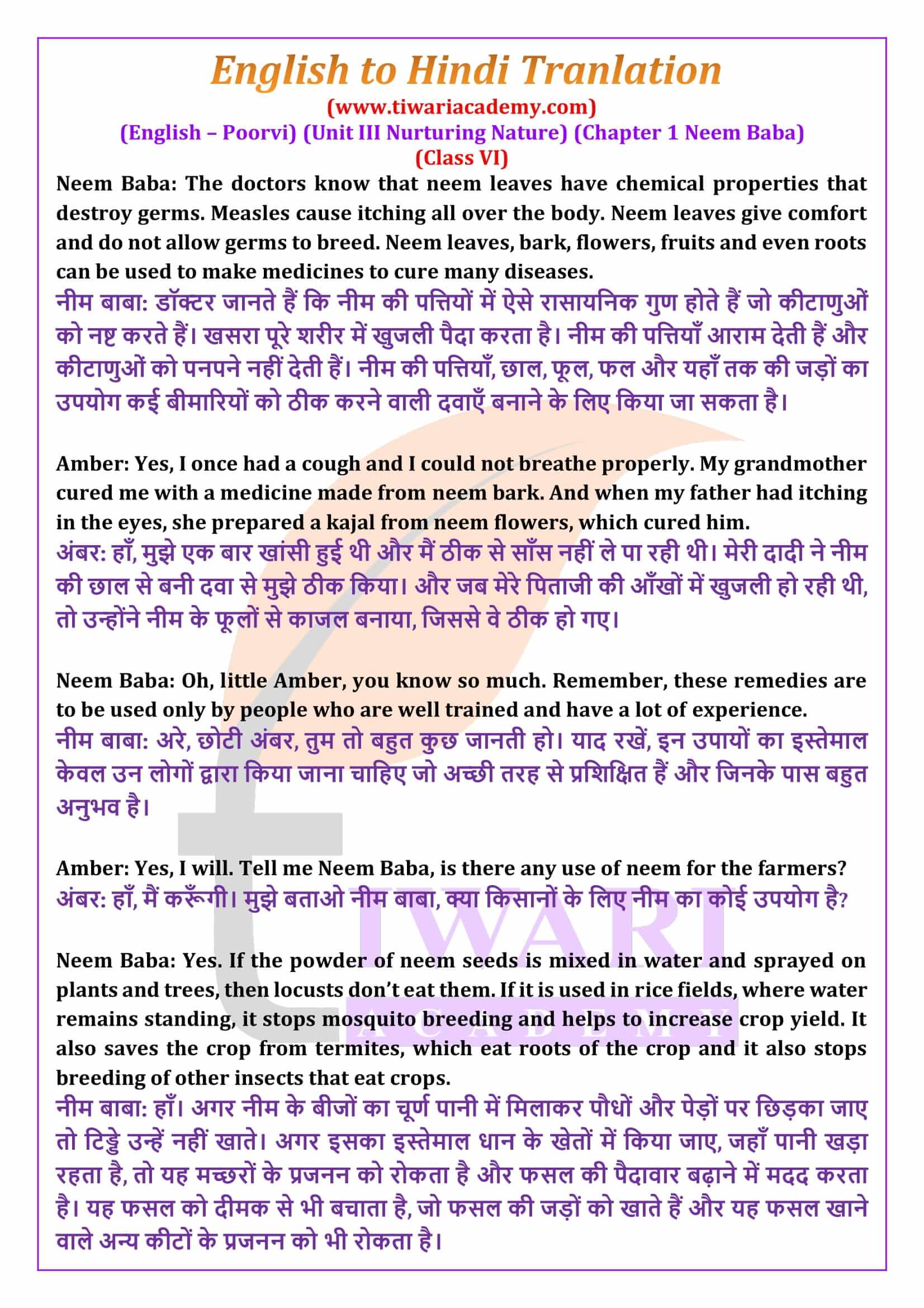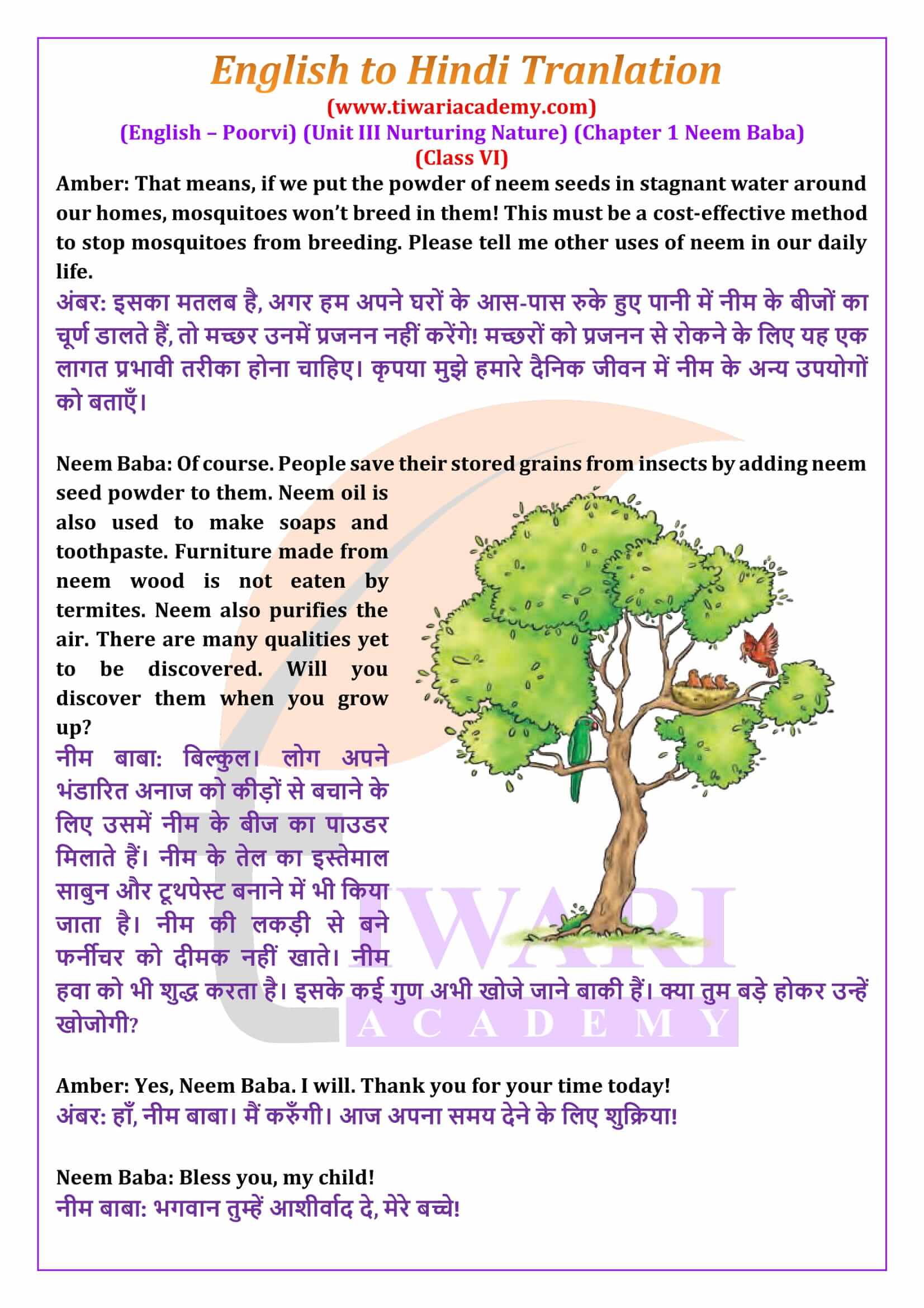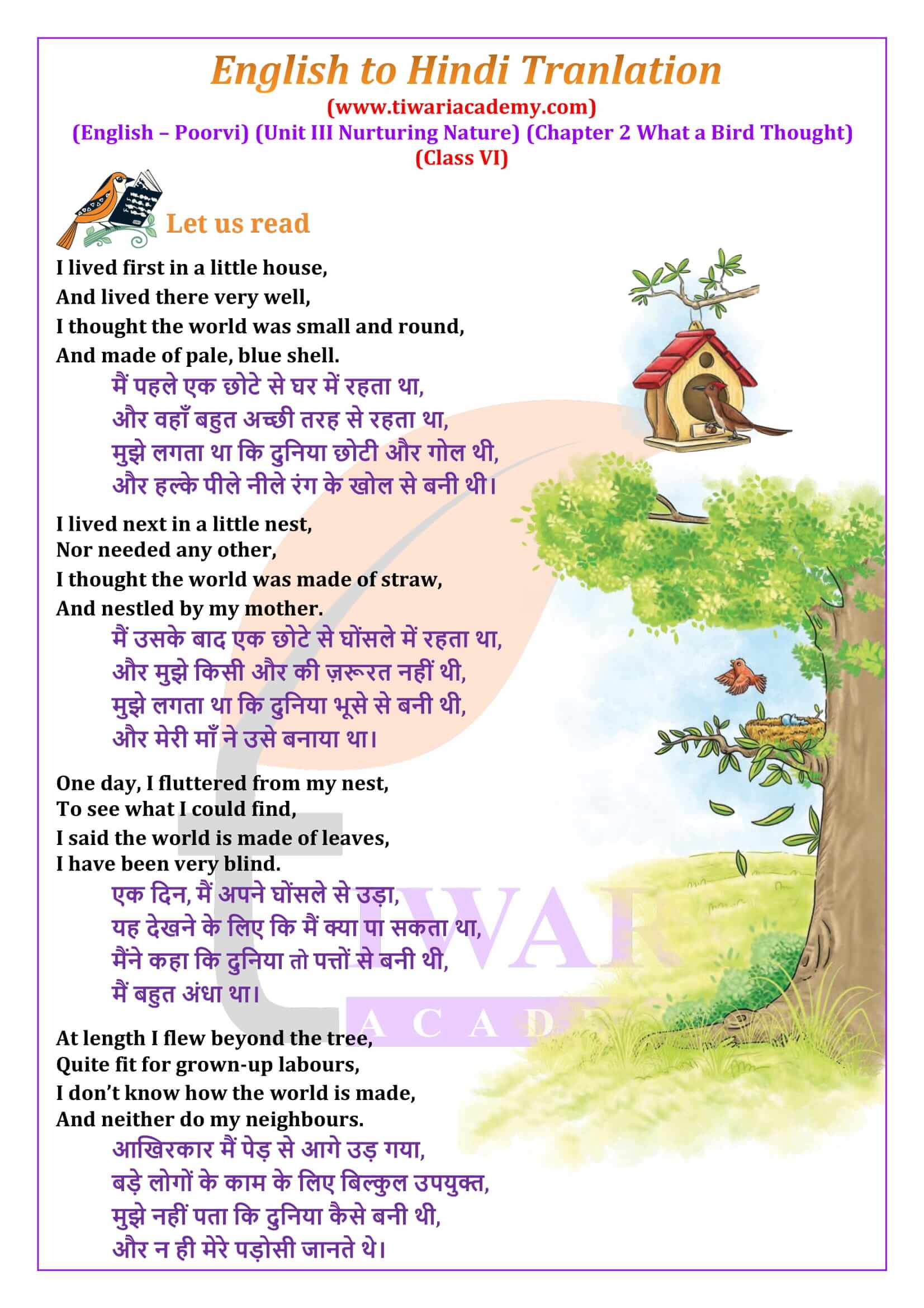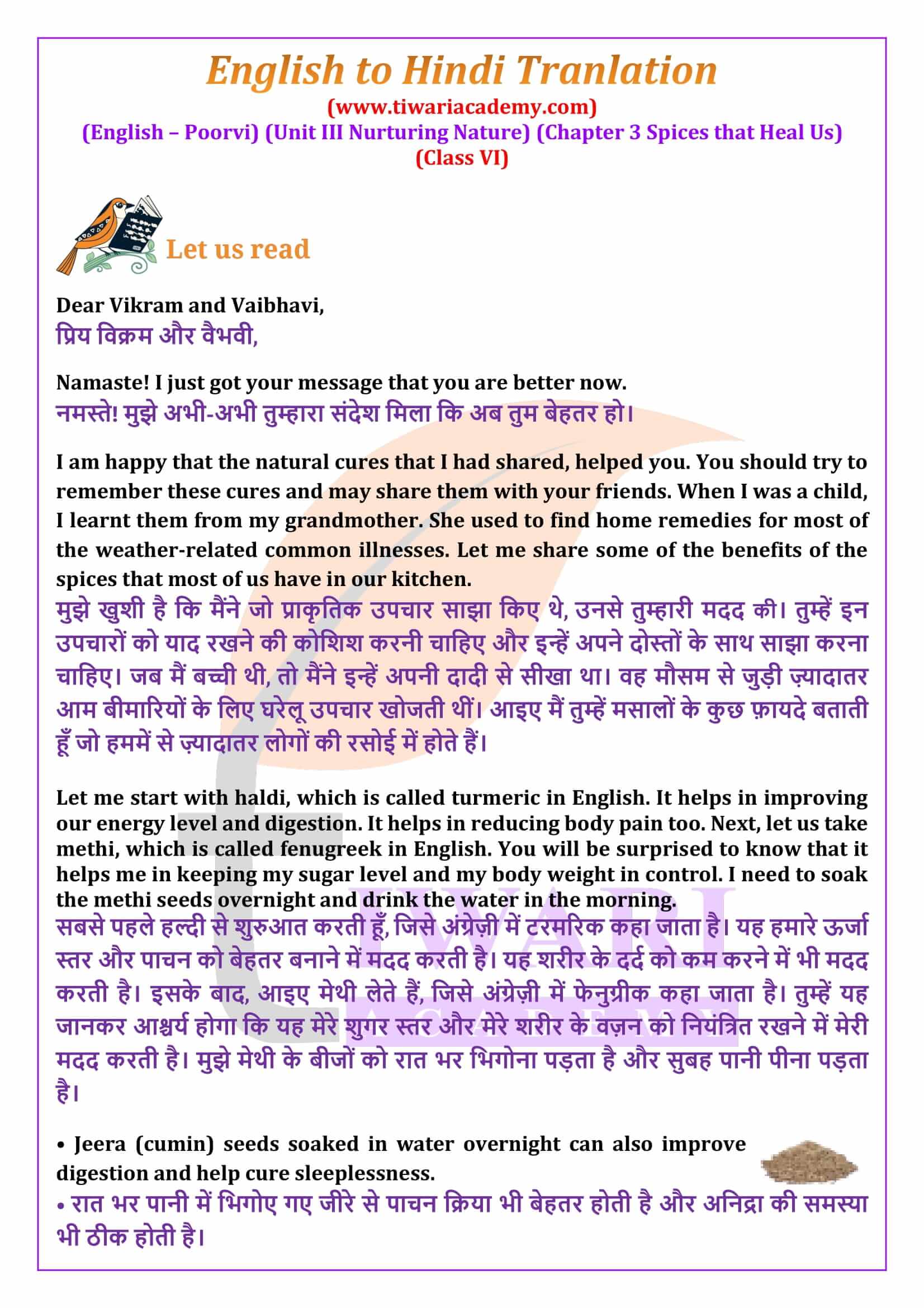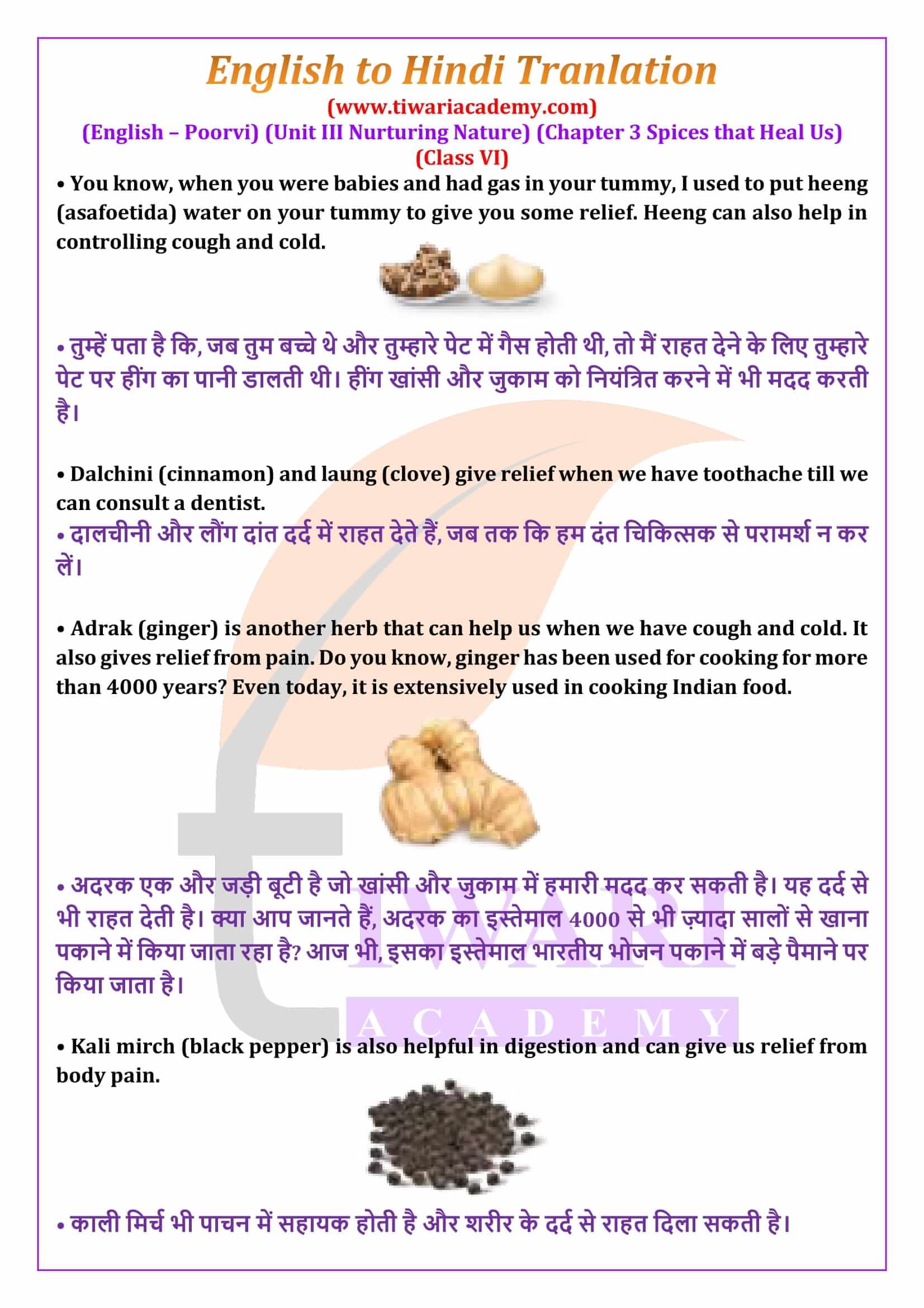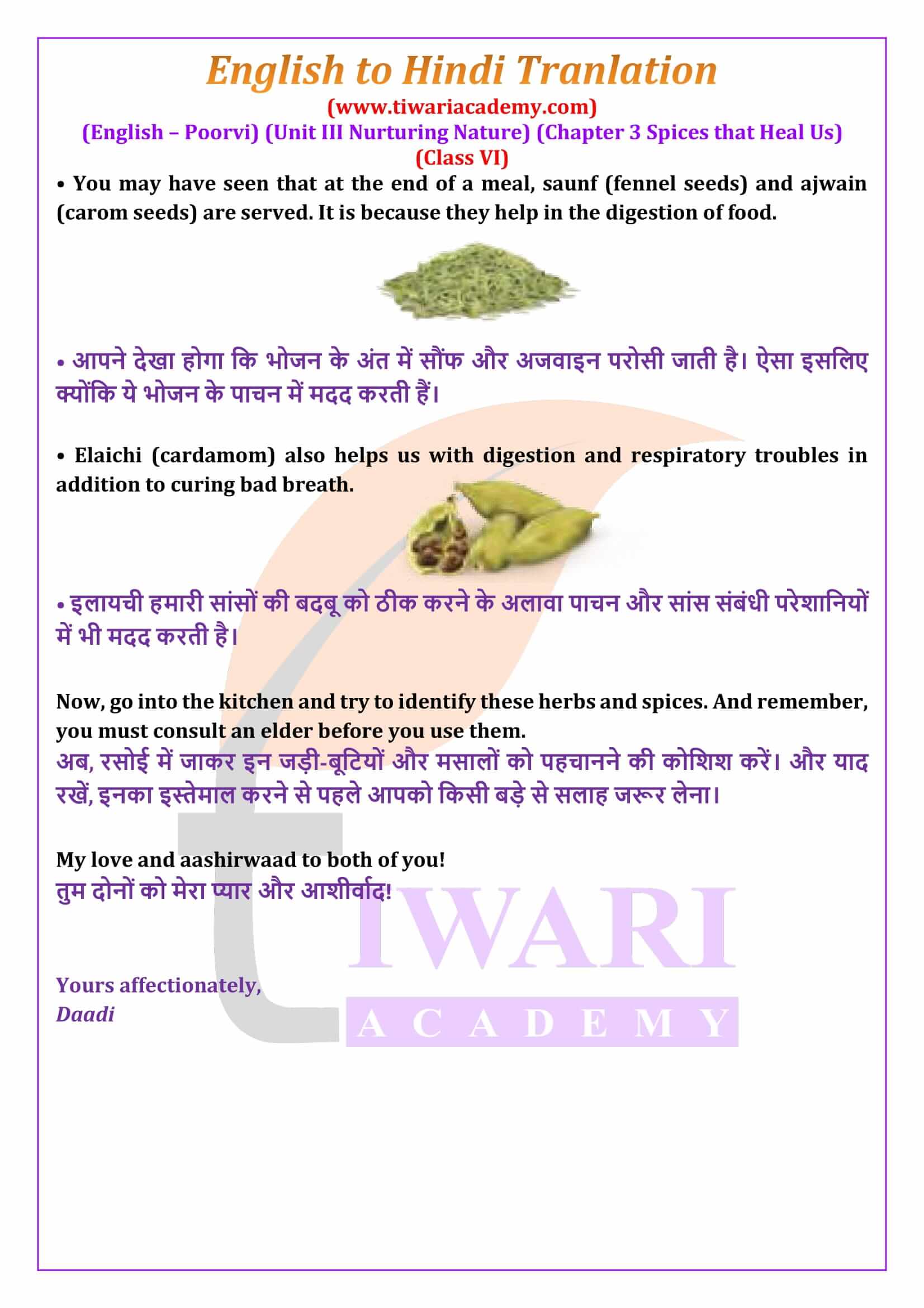NCERT Solutions for Class 6 English Poorvi Unit 3 Nurturing Nature Chapter 1 Neem Baba, Chapter 2 What a Bird Thought and Chapter 3 Spices that Heal Us for session 2025-26. Students can get here English to Hindi Translation, exercises solution with complete answers.
Class 6 English Poorvi Unit 3 Nurturing Nature
Class 6 English Unit III Chapter 1 Neem Baba – Story
Amber returned from school and sat down in the shade of the neem tree in her courtyard.
She felt that the tree was whispering to her. She looked at the tree and spoke to the tree.
Amber : Namaste! I am Amber. I would like to talk to you. May I?
Neem Baba : Sure, dear Amber. I know you. You played in my shade in your childhood. You may call me ‘Neem Baba’.
Amber : I have seen you almost everywhere. Please tell me something more about yourself.
Neem Baba : I am very old. I was born millions of years ago somewhere in North India or Myanmar. Soon, my family spread outside India.
Amber : Outside India? Where else can neem be found?
Neem Baba : My family can be found in many Asian and African countries and even in some parts of America.
Amber : That’s wonderful! Who gave you your name?
Neem Baba : The story of my name is very thought-provoking. I was born in India and given Sanskrit names such as Arishta (the one who cures diseases), Nimba and Nimbaca. The name ‘Neem’ is given by the Iranians.
Amber : Really?
Neem Baba : Yes, in Hindi, my name is Nimb. In India, I have other names—Nim, Leemba, Nimori, Nimbamond, Nimbe and Nimo.
Amber : You are so well known! That is wonderful.
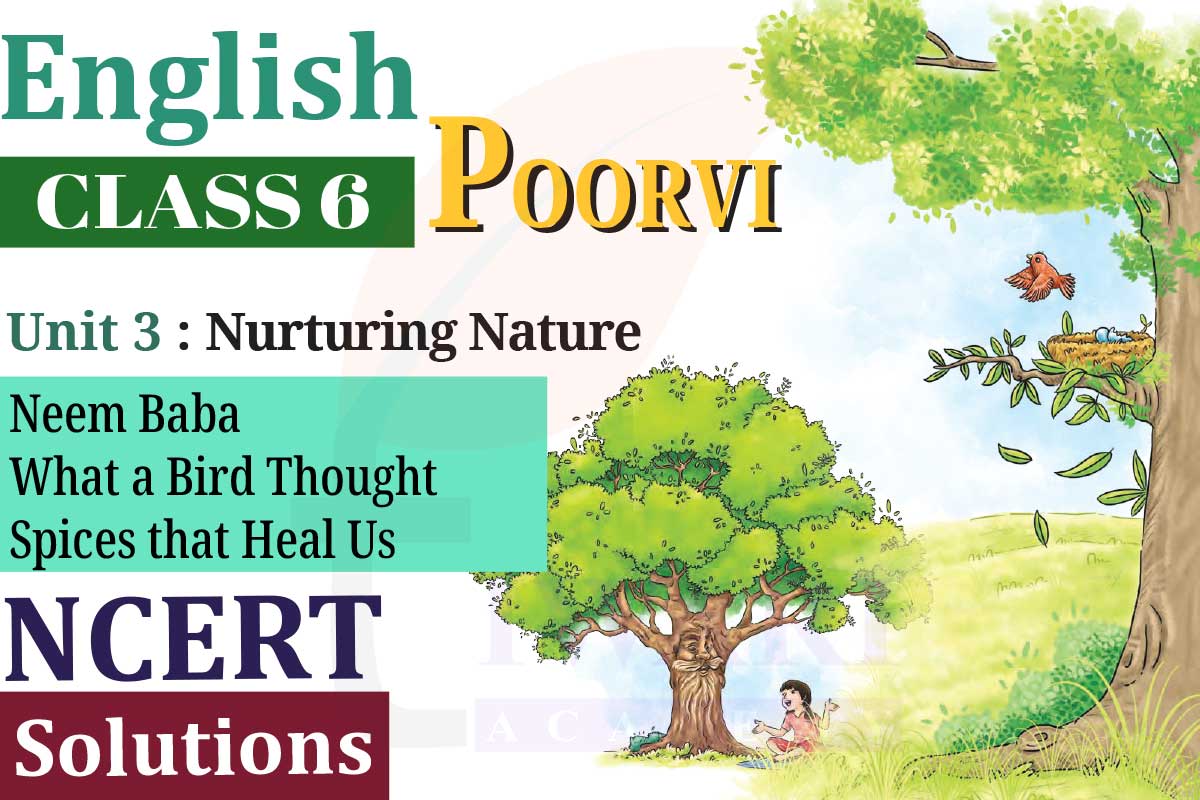
Neem Baba : Dear Amber, we become well known for what we do. People find us useful and that is why they know us. Scientists call us ‘bitter grace of God’, ‘nature’s gift to man’, and ‘cleanliness-parting tree’. Some even call us ‘magic tree’ and ‘the tree of the twentieth century’.
Amber : I know that people clean teeth with your twigs and protect clothes with your leaves. Sometime back, when my brother had measles, the doctor told us to put neem leaves on his bed and make him lie down on them. Can you explain why?
Neem Baba : The doctors know that neem leaves have chemical properties that destroy germs. Measles cause itching all over the body. Neem leaves give comfort and do not allow germs to breed. Neem leaves, bark, flowers, fruits and even roots can be used to make medicines to cure many diseases.
Amber : Yes, I once had a cough and I could not breathe properly. My grandmother cured me with a medicine made from neem bark. And when my father had itching in the eyes, she prepared a kajal from neem flowers, which cured him.
Neem Baba : Oh, little Amber, you know so much. Remember, these remedies are to be used only by people who are well trained and have a lot of experience.
Amber : Yes, I will. Tell me Neem Baba, is there any use of neem for the farmers?
Neem Baba : Yes. If the powder of neem seeds is mixed in water and sprayed on plants and trees, then locusts don’t eat them. If it is used in rice fields, where water remains standing, it stops mosquito breeding and helps to increase crop yield. It also saves the crop from termites, which eat roots of the crop, and it also stops breeding of other insects that eat crops.
Amber : That means, if we put the powder of neem seeds in stagnant water around our homes, mosquitoes won’t breed in them! This must be a cost-effective method to stop
mosquitoes from breeding. Please tell me other uses of neem in our daily life.
Neem Baba : Of course. People save their stored grains from insects by adding neem seed powder to them. Neem oil is also used to make soaps and toothpaste. Furniture made from neem wood is not eaten by termites. Neem also purifies the air. There are many qualities yet to be discovered. Will you discover them when you grow up?
Amber : Yes, Neem Baba. I will. Thank you for your time today!
Neem Baba : Bless you, my child!
Class 6 English Unit III Chapter 1 Neem Baba – Summary
Amber, after returning from school, spoke to an ancient neem tree in her courtyard, which she called Neem Baba. Neem Baba shared its rich history, originating in North India or Myanmar and spreading to Asia, Africa, and America. Known by many names and praised for its numerous benefits, neem is called the “bitter grace of God” and “nature’s gift to man.” Neem Baba explained its uses in traditional medicine, agriculture, and daily life, such as curing diseases, protecting crops, and making products like soap and toothpaste. Amber, inspired by the conversation, promised to explore more uses of neem in the future.
Class 6 English Unit III Chapter 2 What a Bird Thought – Poem
I lived first in a little house,
And lived there very well,
I thought the world was small and round,
And made of pale, blue shell.
I lived next in a little nest,
Nor needed any other,
I thought the world was made of straw,
And nestled by my mother.
One day, I fluttered from my nest,
To see what I could find,
I said the world is made of leaves,
I have been very blind.
At length I flew beyond the tree,
Quite fit for grown-up labours,
I don’t know how the world is made,
And neither do my neighbours.
Class 6 English Unit III Chapter 2 What a Bird Thought – Summary
The poem describes the speaker’s journey of discovery and growth. Initially, living in a small house, the speaker believed the world was small and enclosed. Moving to a nest, they thought the world was made of straw and protected by their mother. Upon leaving the nest, the speaker realized the world was made of leaves, expanding their understanding. Eventually, flying beyond the tree, ready for adult responsibilities, the speaker acknowledges the vastness and mystery of the world, realizing that neither they nor their neighbors truly know how the world is made.
Class 6 English Unit III Chapter 3 Spices that Heal Us – Letter
Dear Vikram and Vaibhavi,
Namaste! I just got your message that you are better now. I am happy that the natural cures that I had shared, helped you. You should try to remember these cures and may share them with your friends. When I was a child, I learnt them from my grandmother. She used to find home remedies for most of the weather-related common illnesses. Let me share some of the benefits of the spices that most of us have in our kitchen. Let me start with haldi, which is called turmeric in English. It helps in improving our energy level and digestion. It helps in reducing body pain too. Next, let us take methi, which is called fenugreek in English. You will be surprised to know that it helps me in keeping my sugar level and my body weight in control. I need to soak the methi seeds overnight and drink the water in the morning.
• Jeera (cumin) seeds soaked in water overnight can also improve digestion and help cure sleeplessness.
• You know, when you were babies and had gas in your tummy, I used to put heeng (asafoetida) water on your tummy to give you some relief. Heeng can also help in controlling cough and cold.
• Dalchini (cinnamon) and laung (clove) give relief when we have toothache till we can consult a dentist.
• Adrak (ginger) is another herb that can help us when we have cough and cold. It also gives relief from pain. Do you know, ginger has been used for cooking for more than 4000 years? Even today, it is extensively used in cooking Indian food.
• Kali mirch (black pepper) is also helpful in digestion and can give us relief from body pain.
• You may have seen that at the end of a meal, saunf (fennel seeds) and ajwain (carom seeds) are served. It is because they help in the digestion of food.
• Elaichi (cardamom) also helps us with digestion and respiratory troubles in addition to curing bad breath.
Now, go into the kitchen and try to identify these herbs and spices. And remember, you must consult an elder before you use them.
My love and aashirwaad to both of you!
Class 6 English Unit III Chapter 3 Spices that Heal Us – Summary
The letter addresses Vikram and Vaibhavi, expressing happiness at their recovery using natural cures. The writer shares wisdom learned from their grandmother about the benefits of common kitchen spices. Turmeric improves energy and digestion; fenugreek helps control sugar levels and weight. Cumin aids digestion and sleeplessness, while asafoetida relieves gas, cough, and cold. Cinnamon and clove alleviate toothache, and ginger, used for over 4000 years, helps with cough, cold, and pain. Black pepper aids digestion and relieves pain, while fennel and carom seeds assist in digestion. Cardamom aids digestion, respiratory issues, and bad breath. The writer advises identifying these spices and consulting elders before use, ending with love and blessings.
